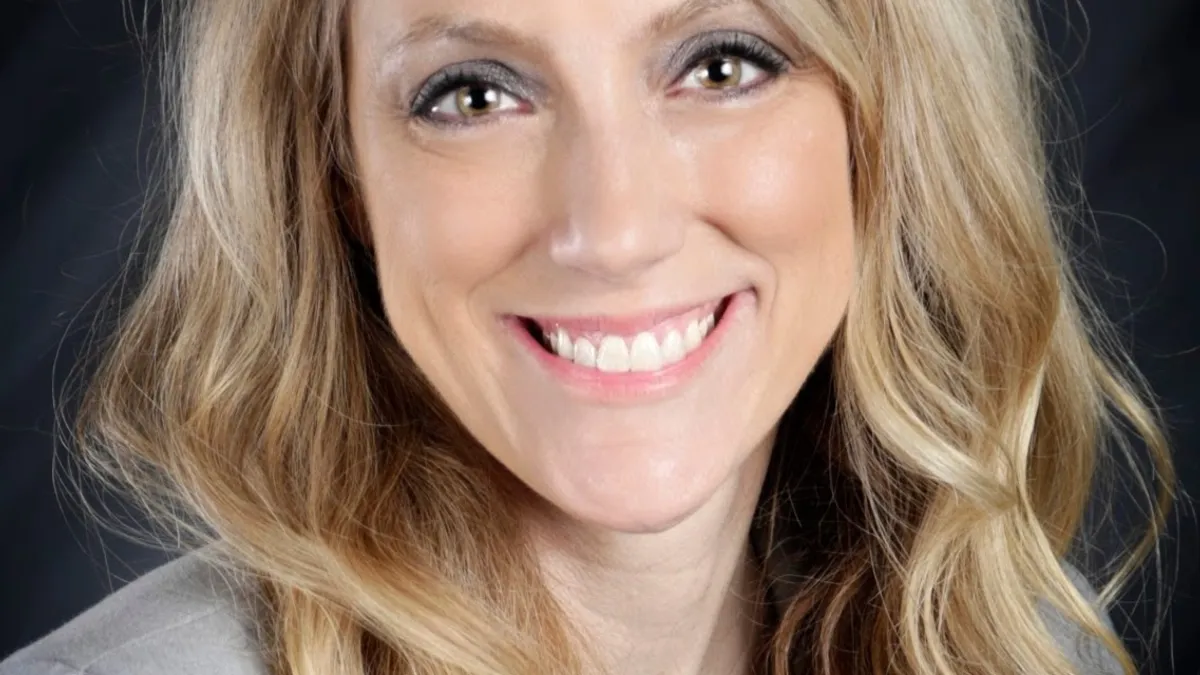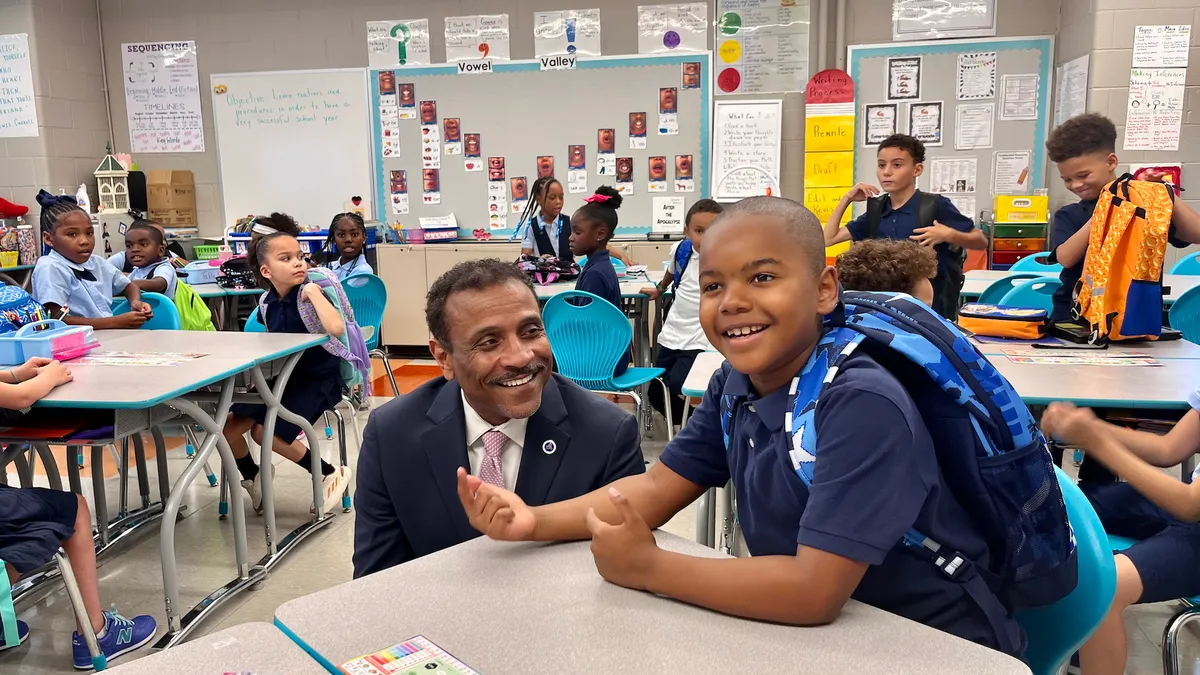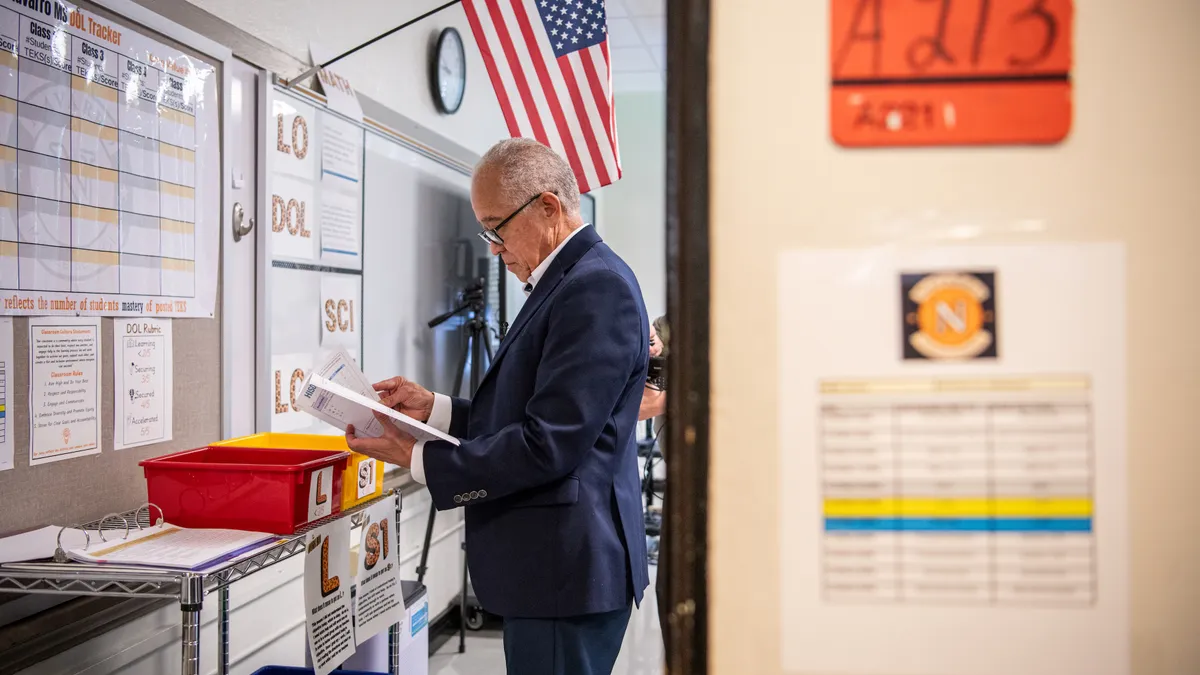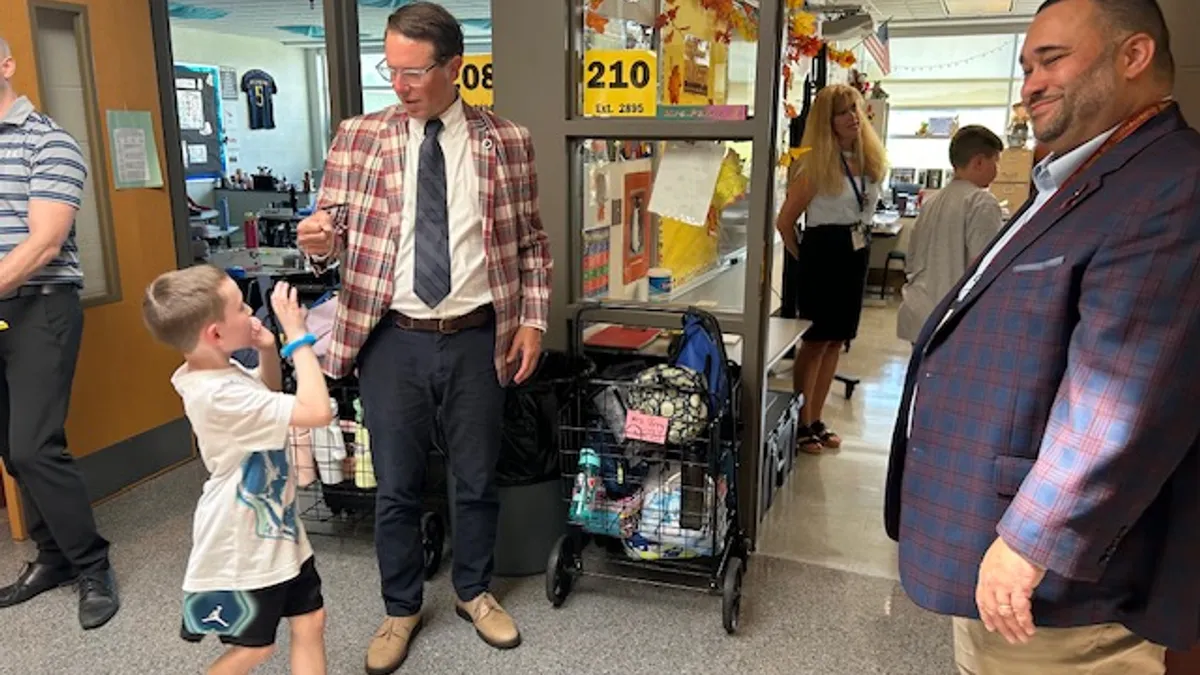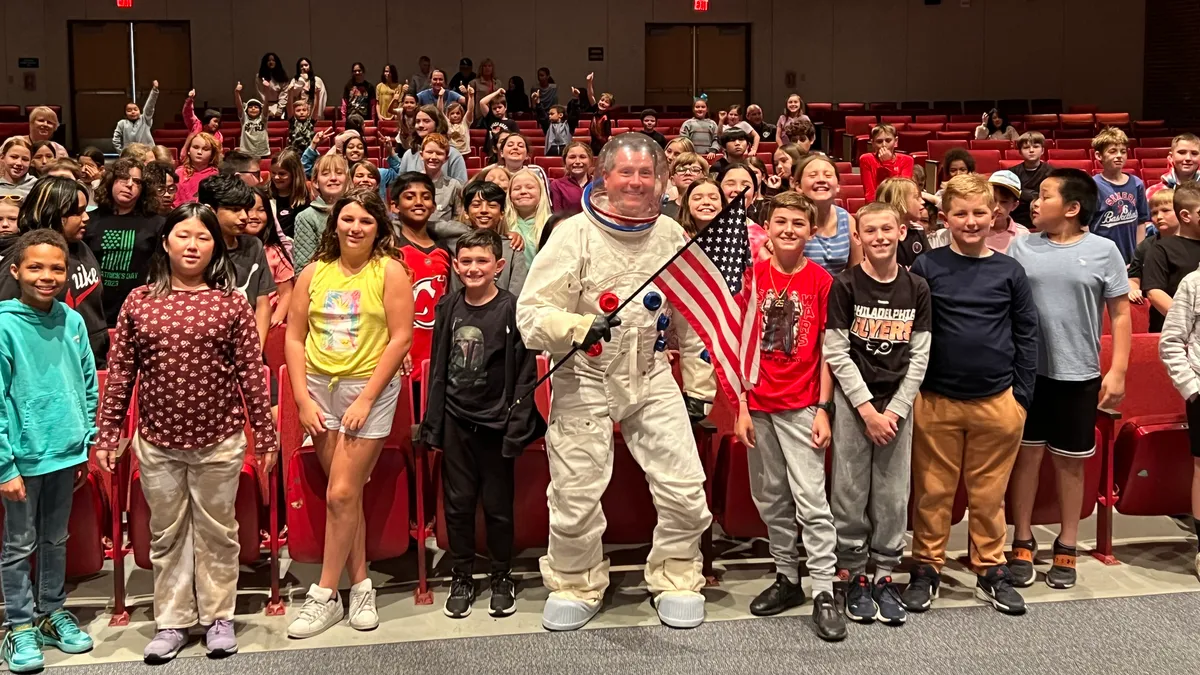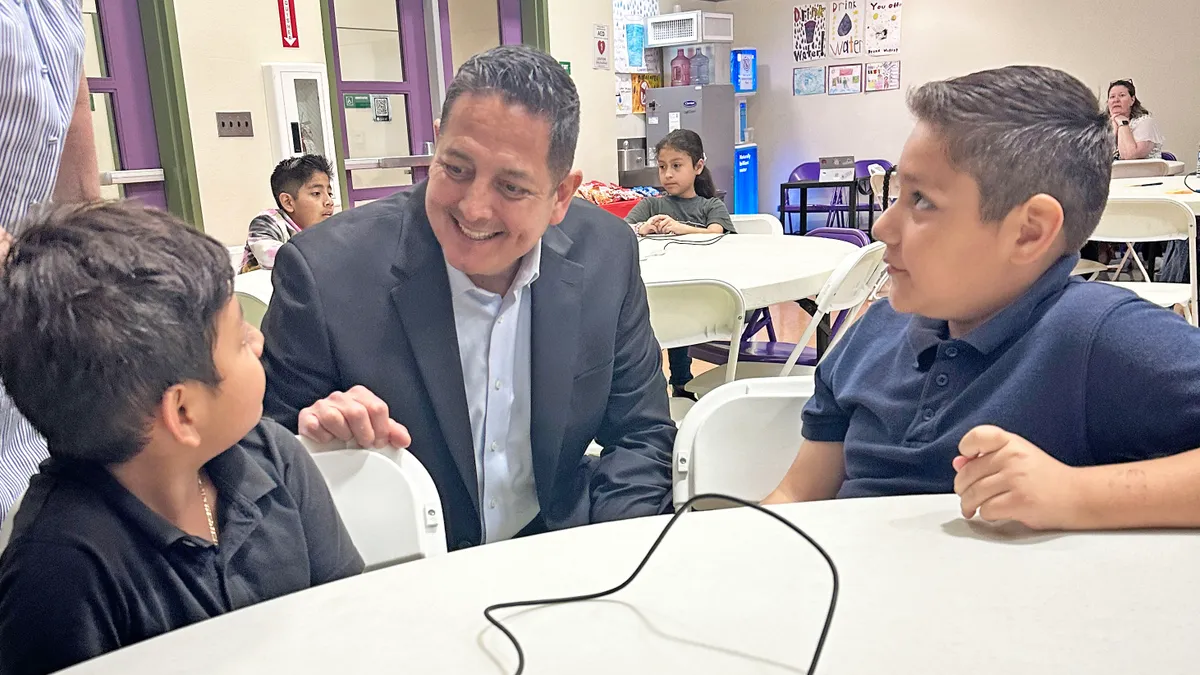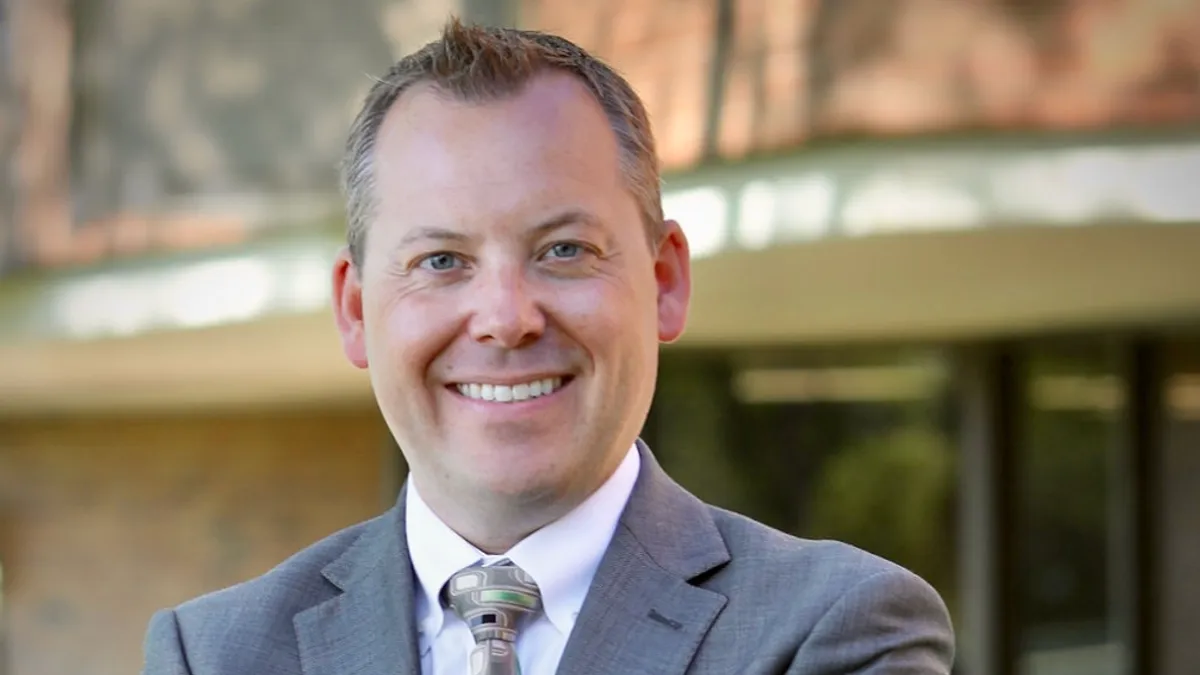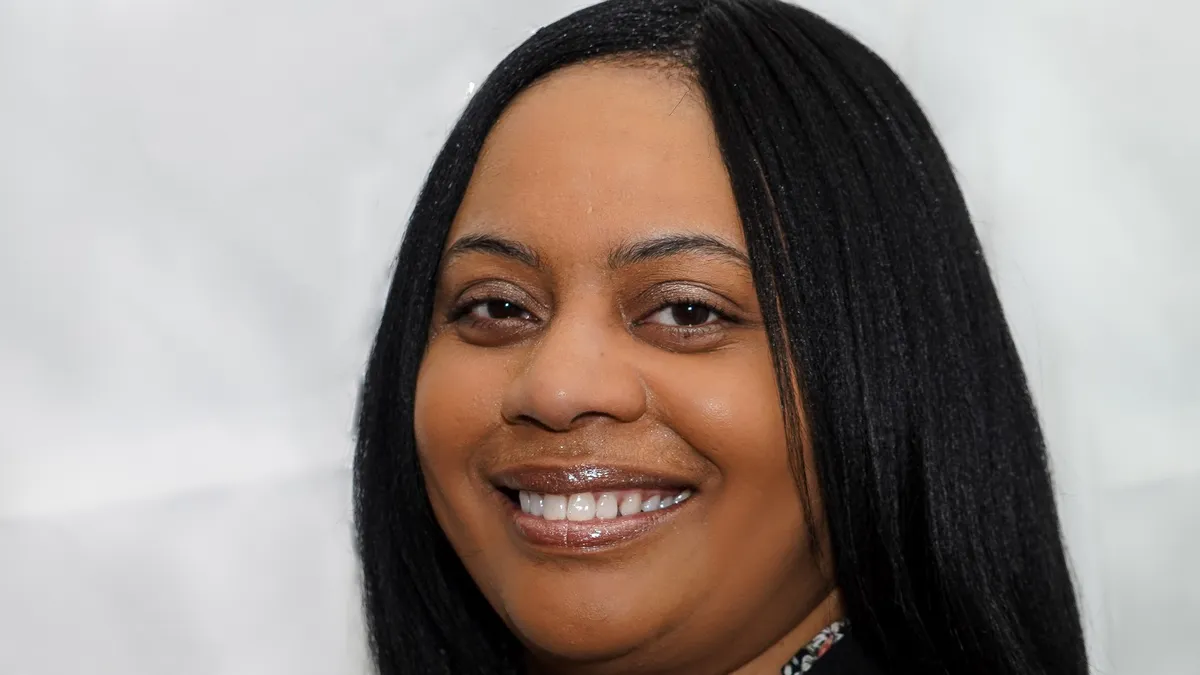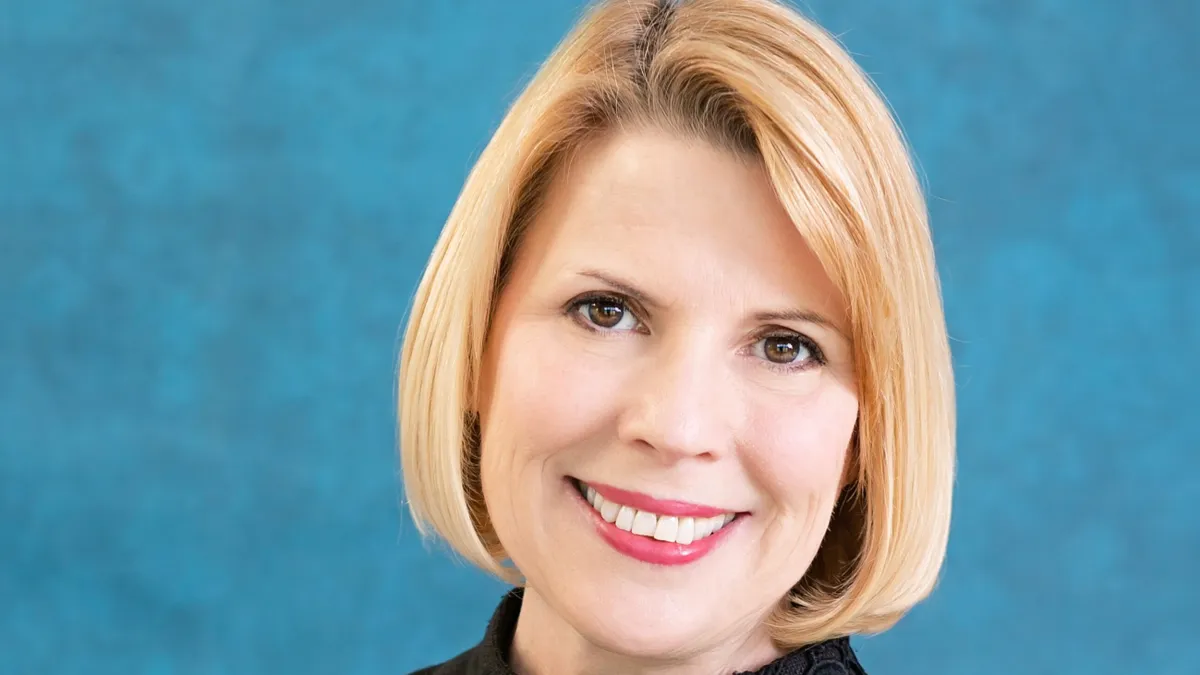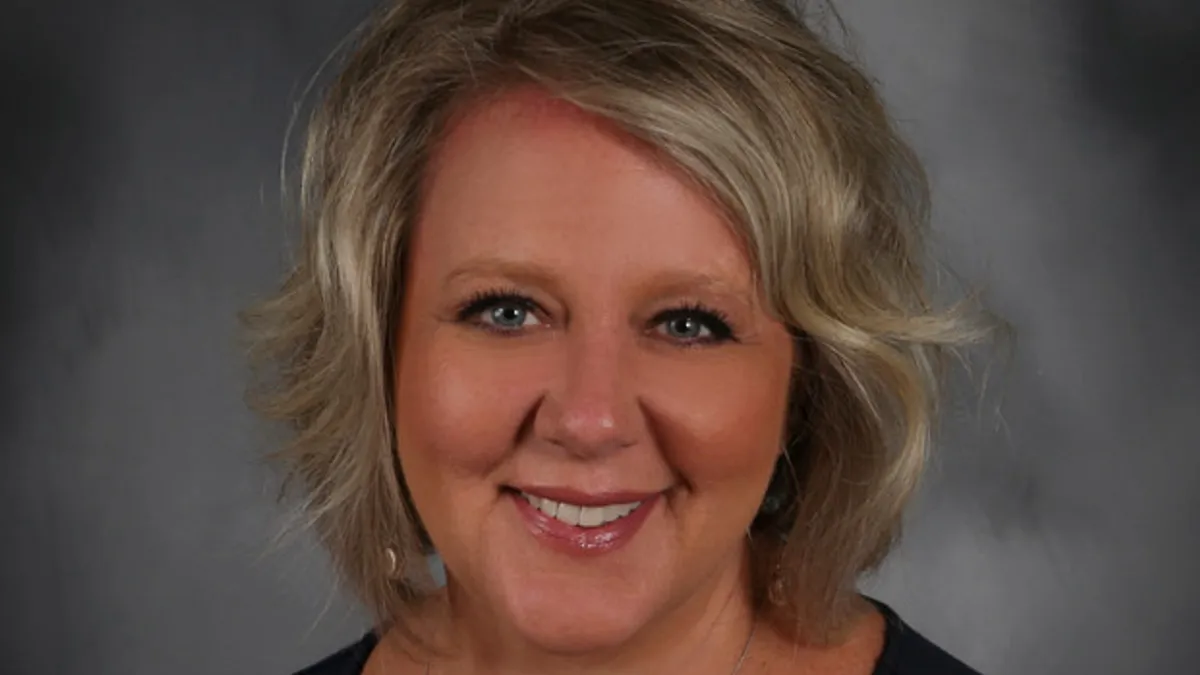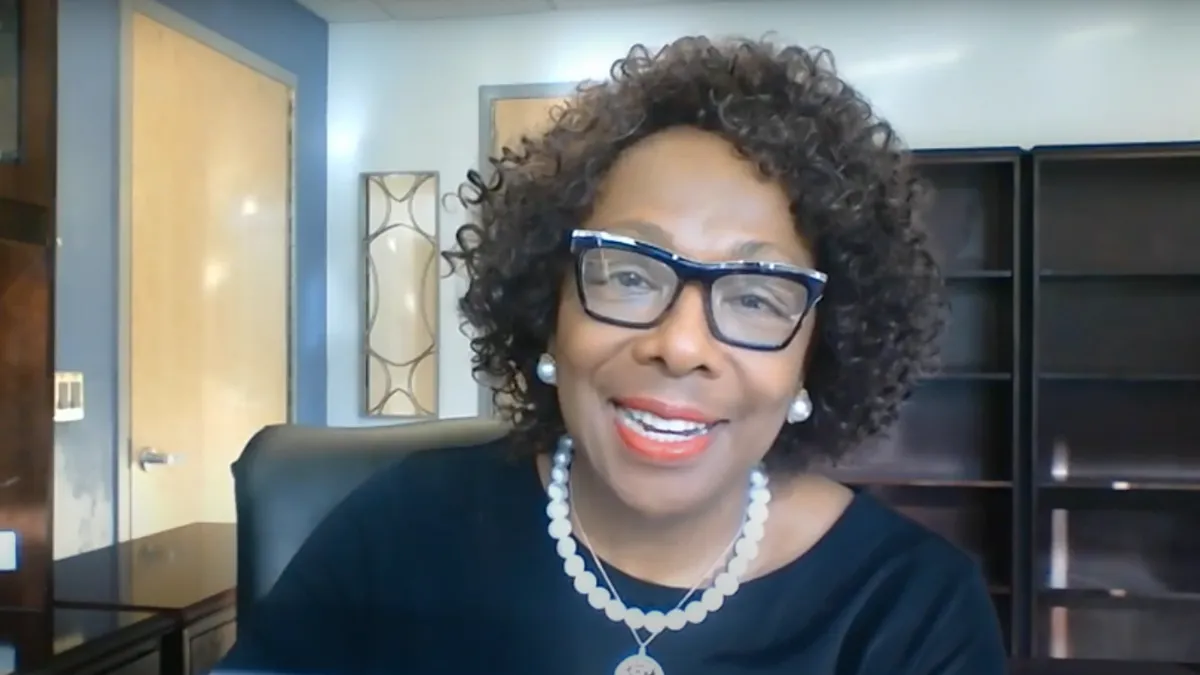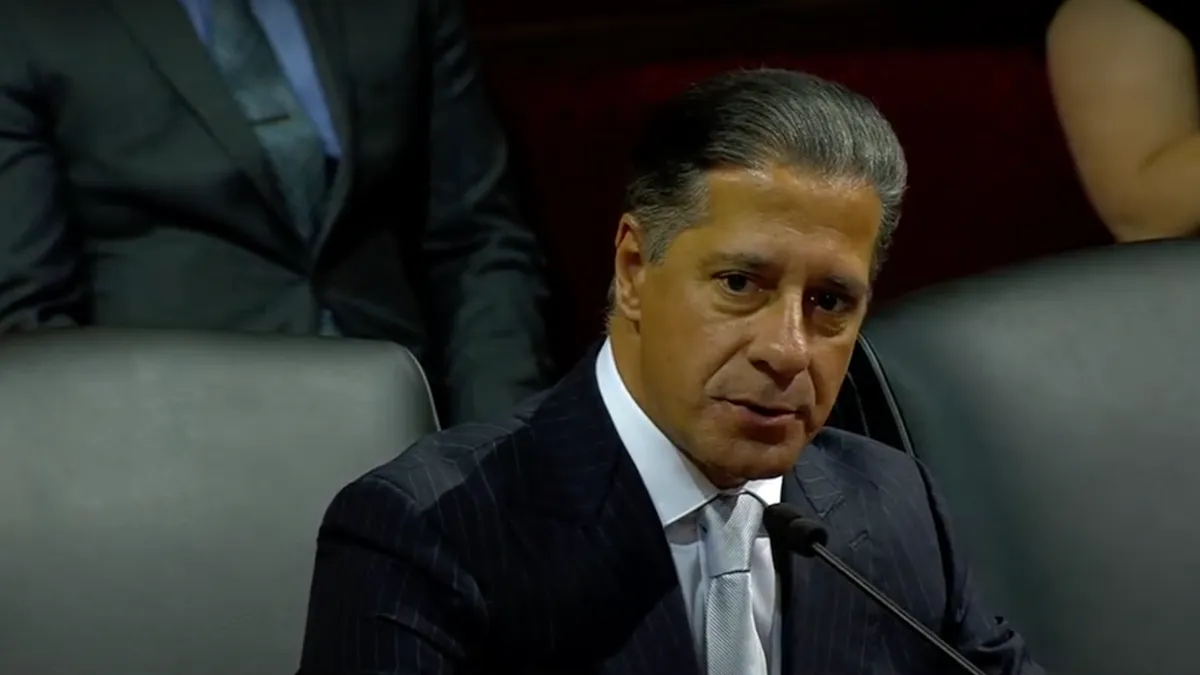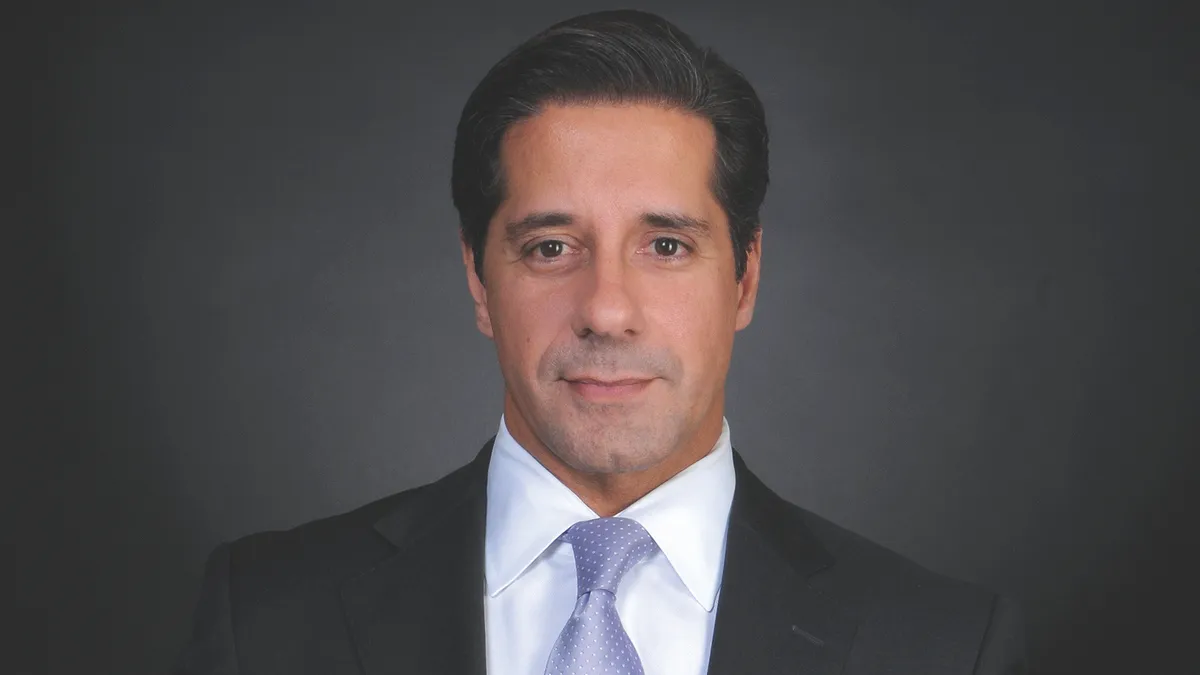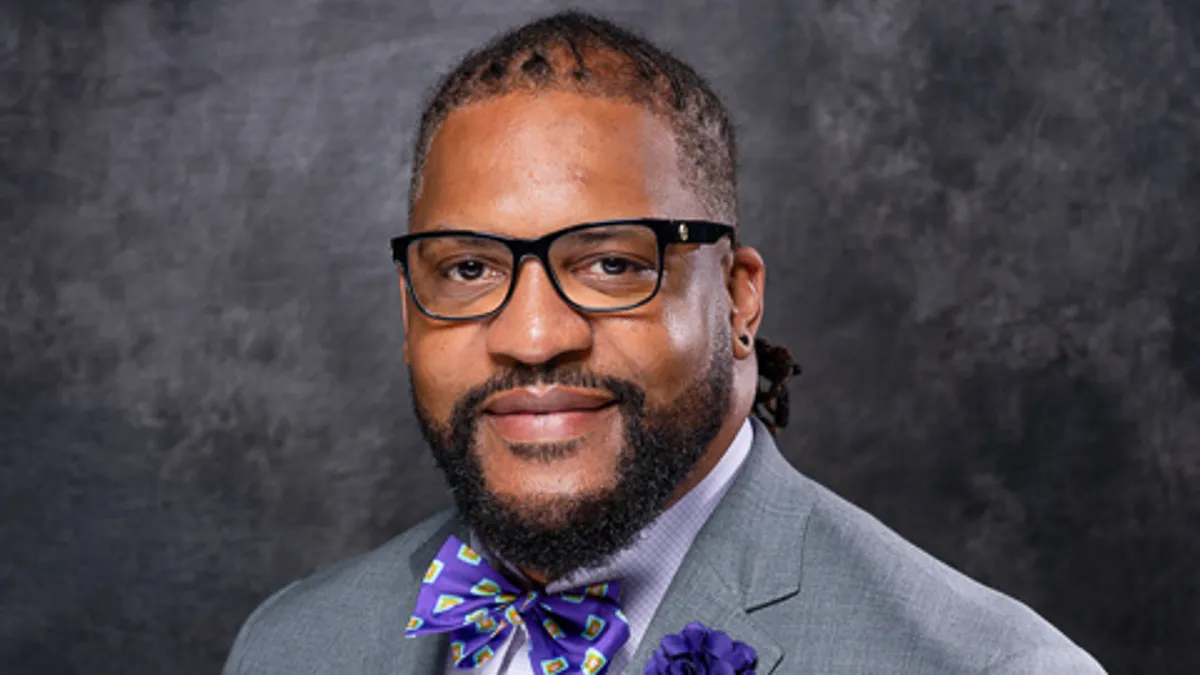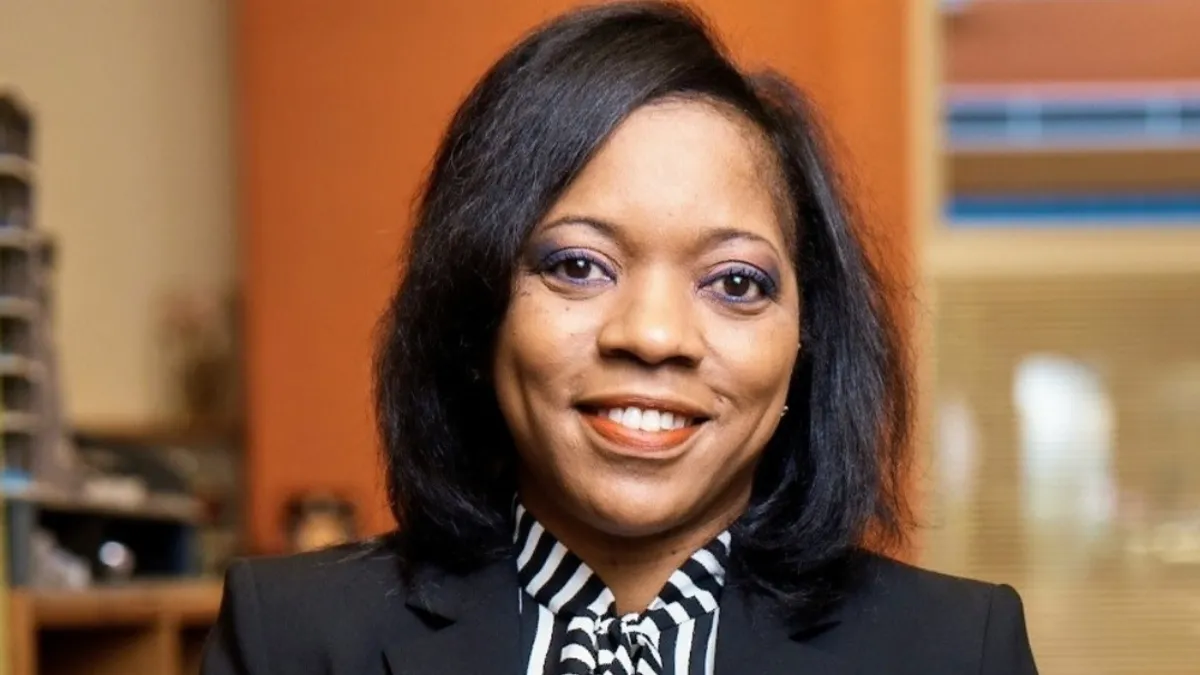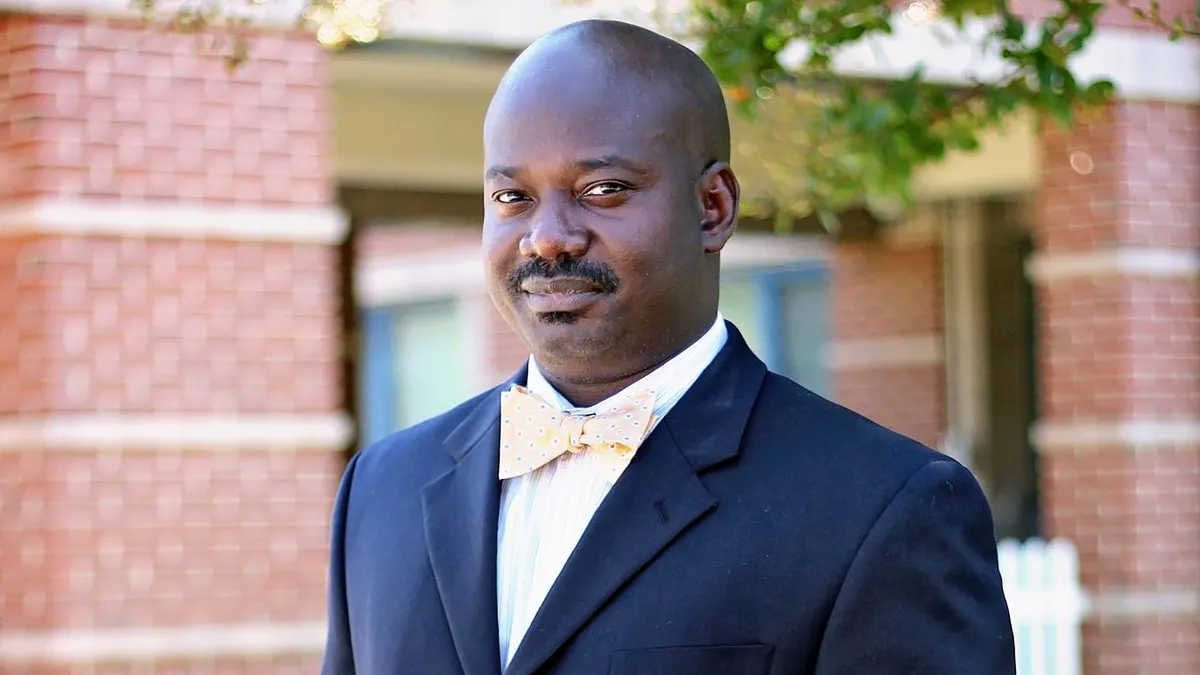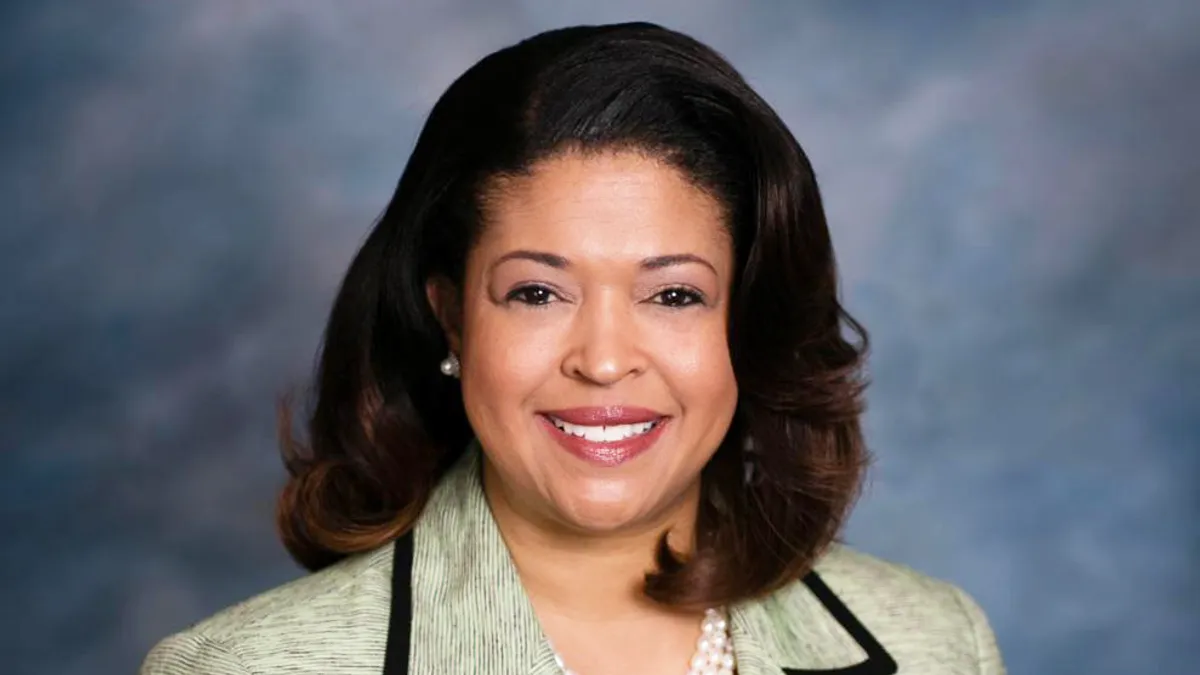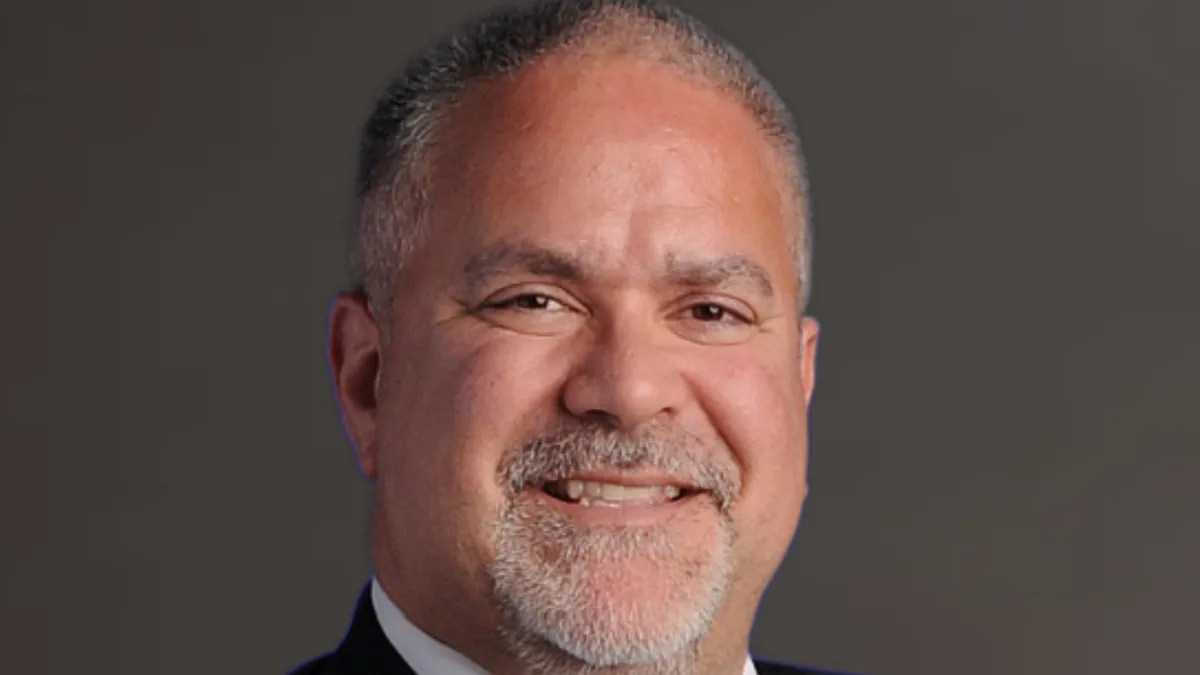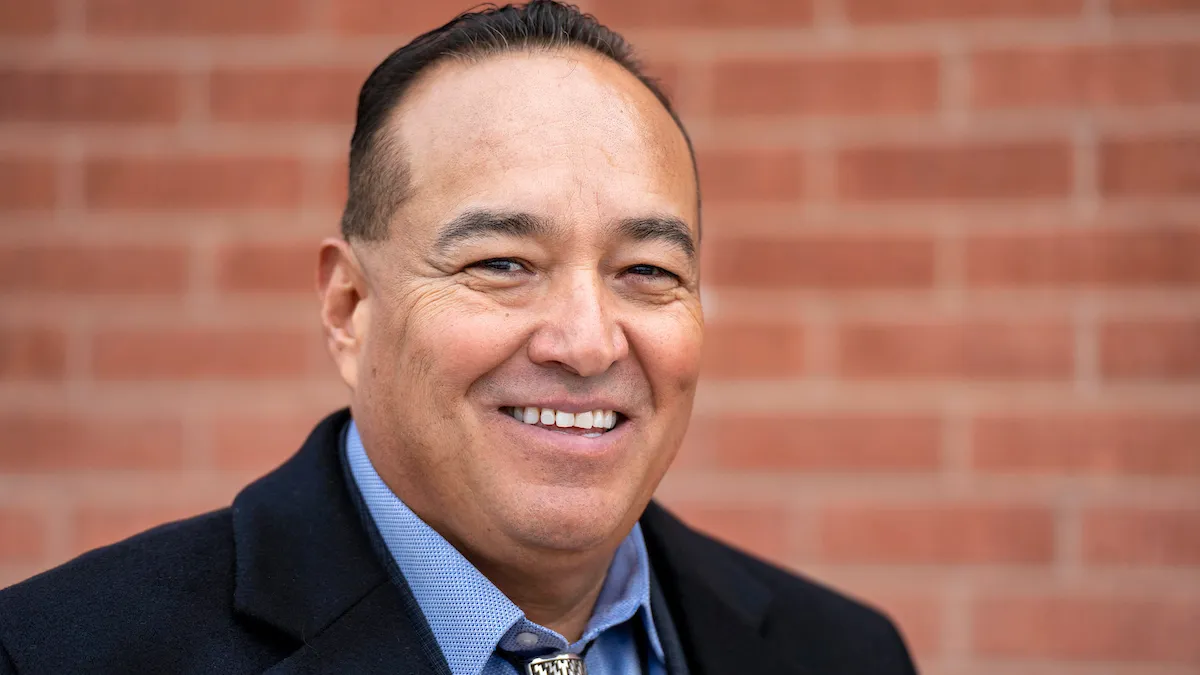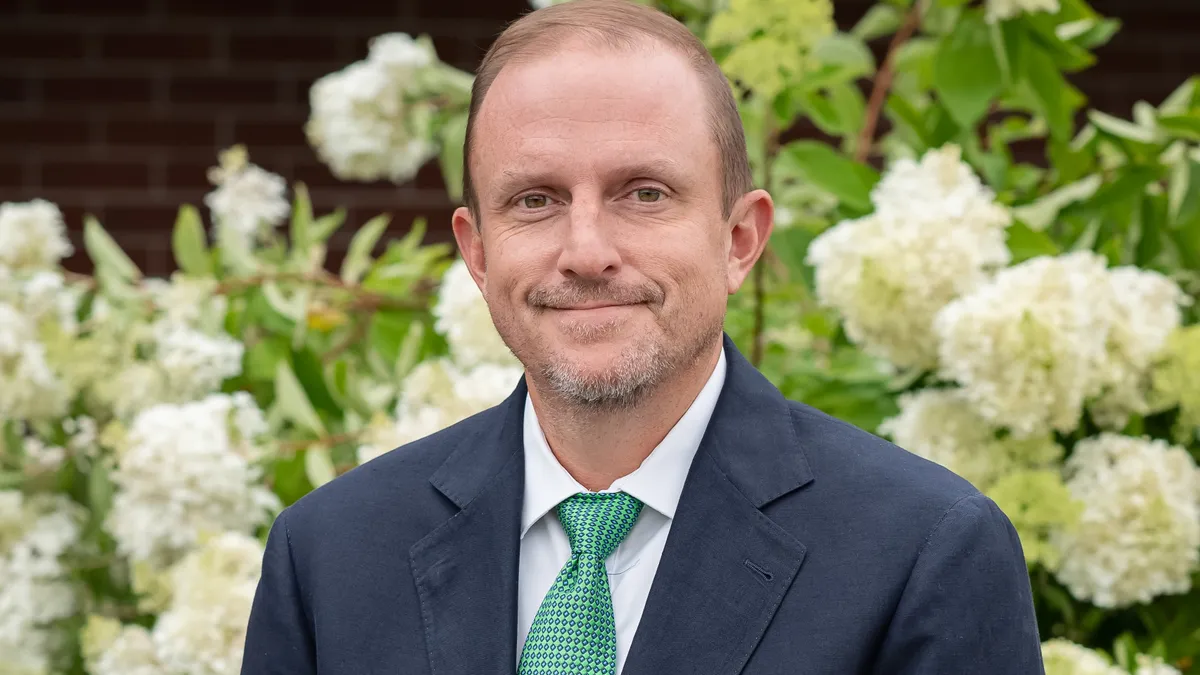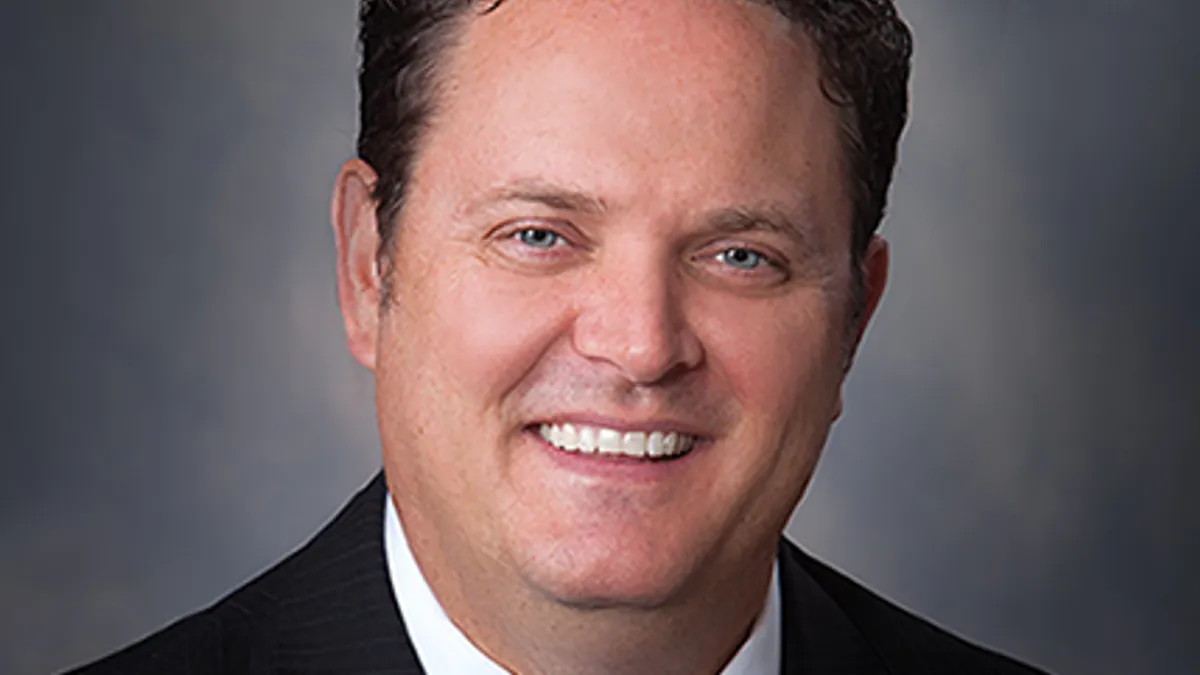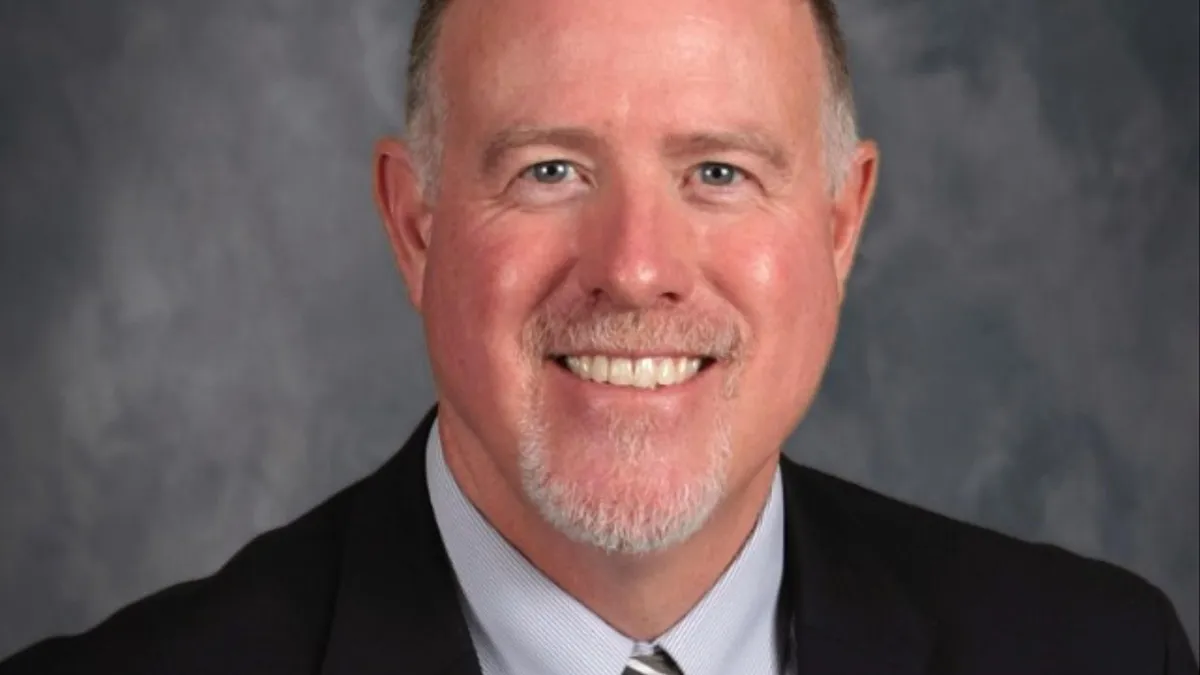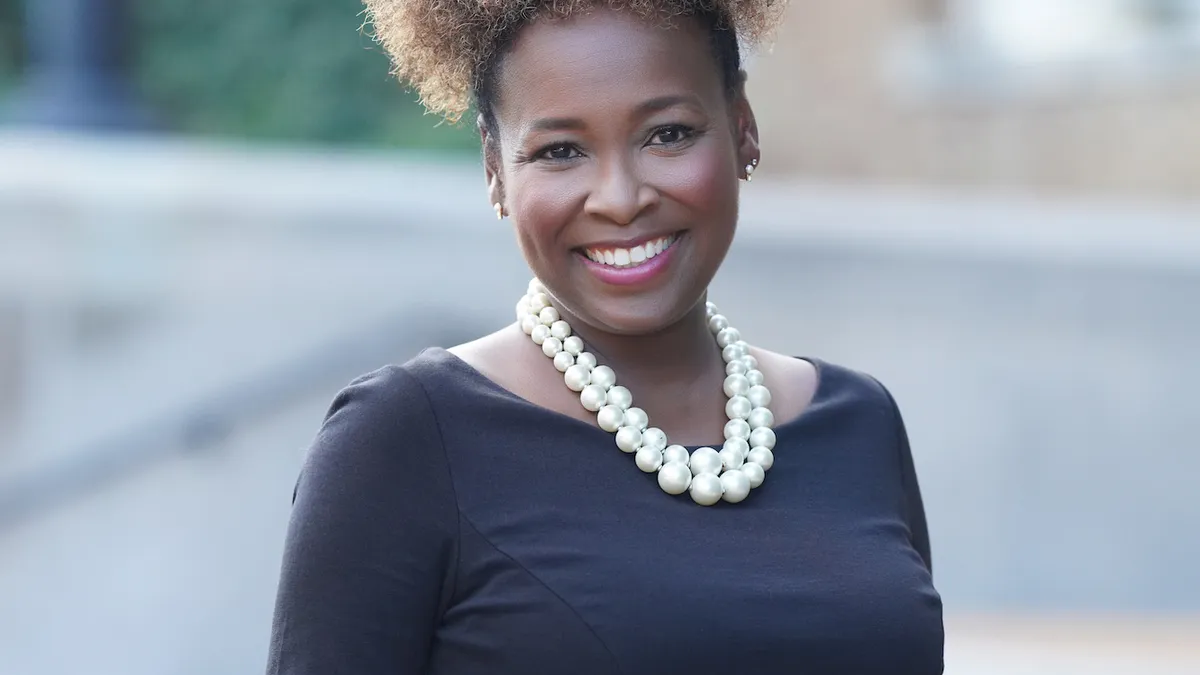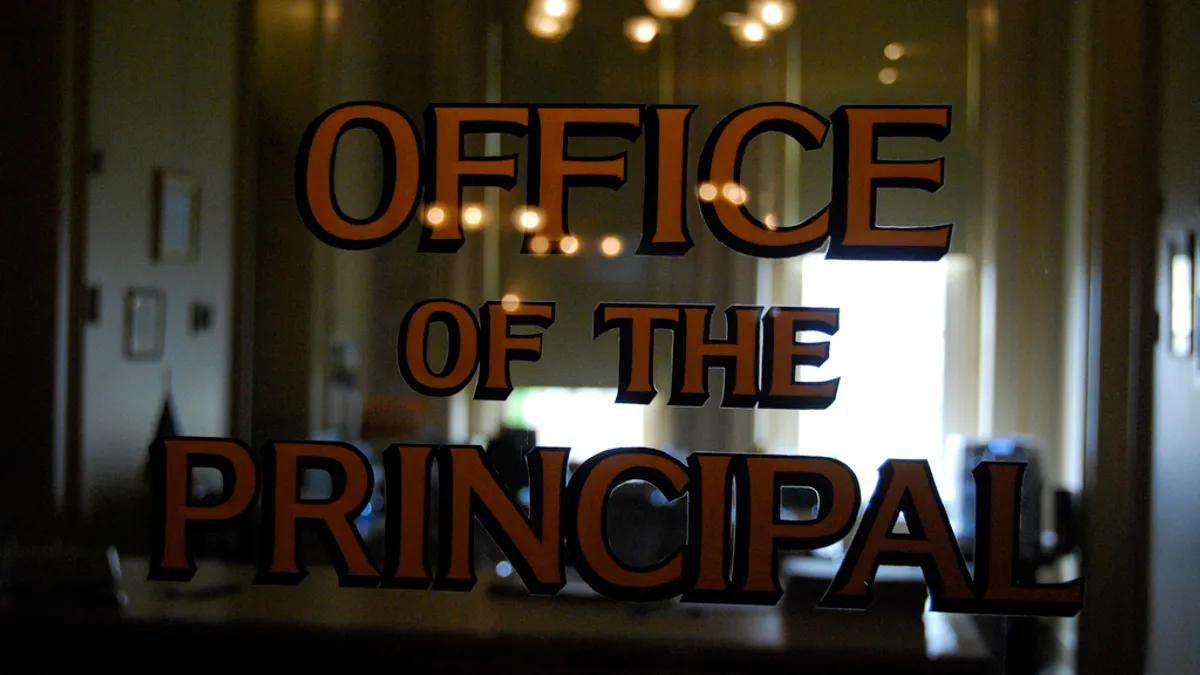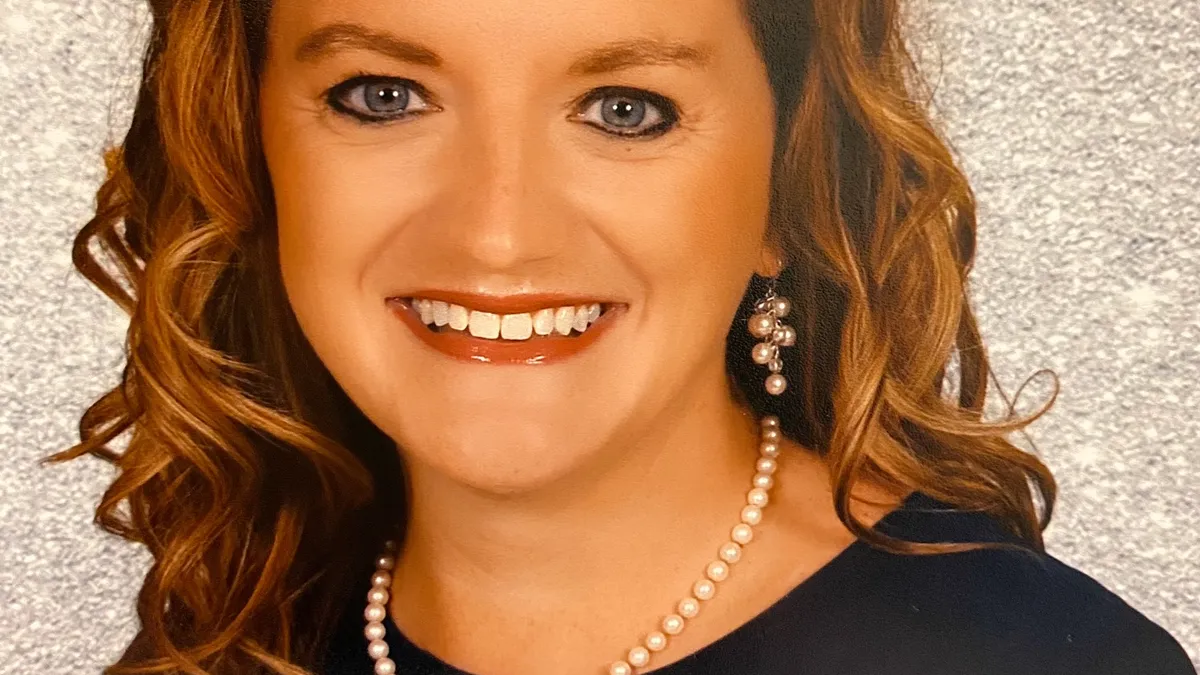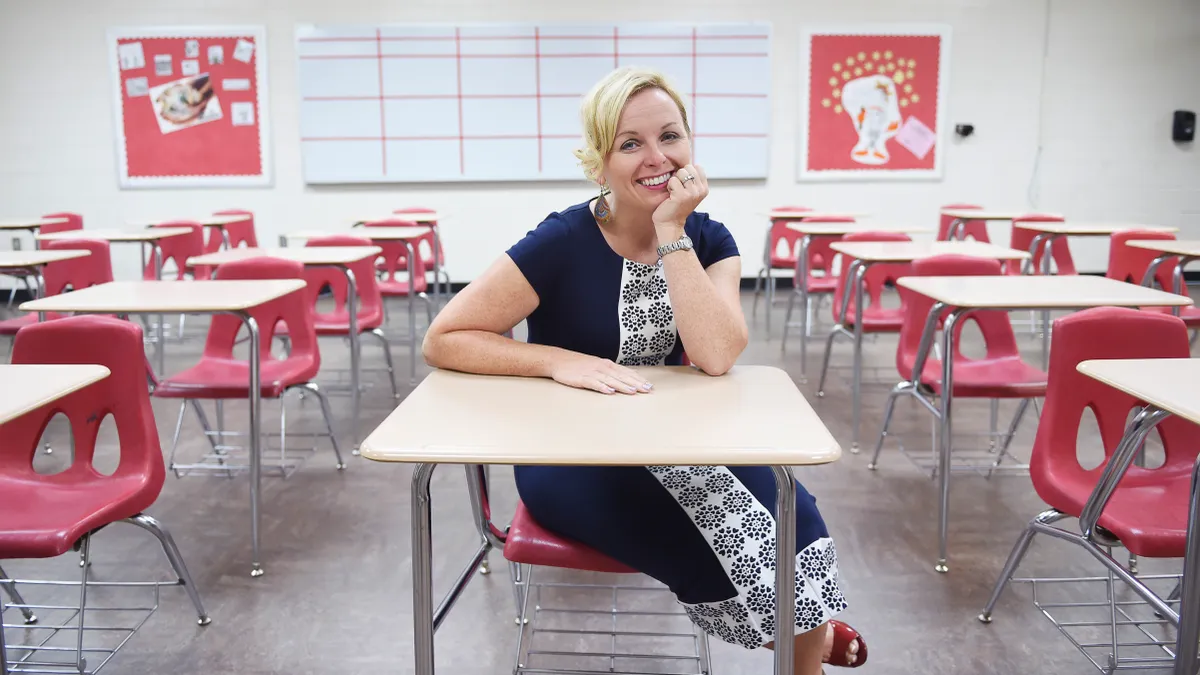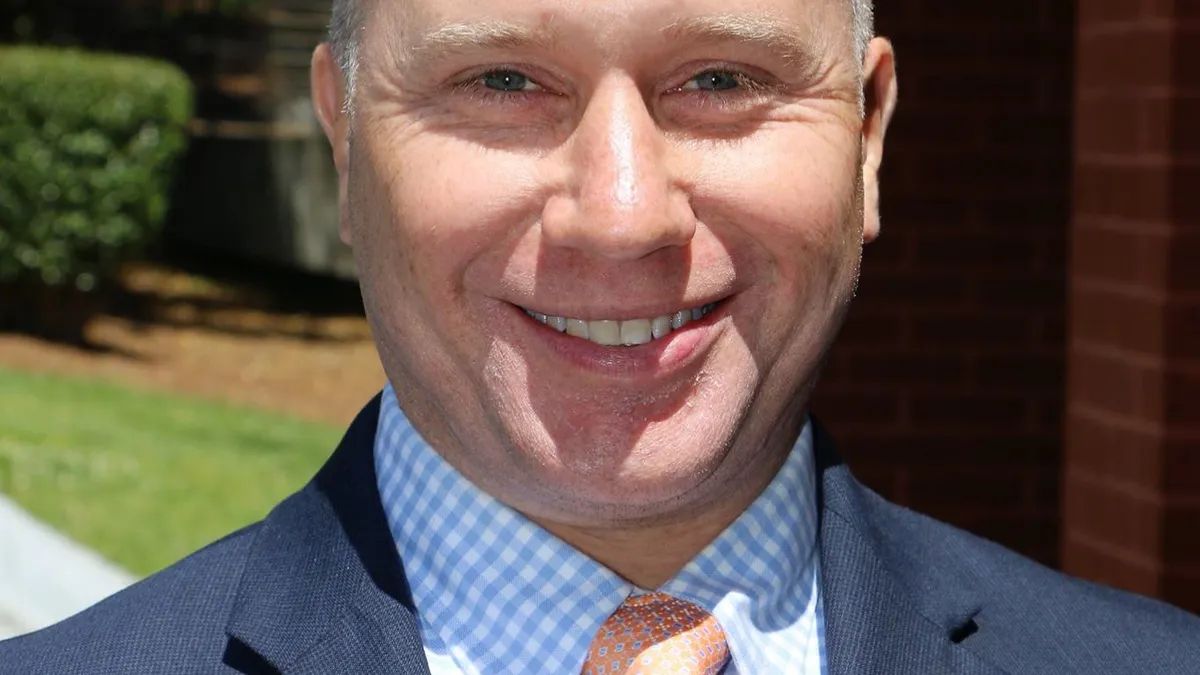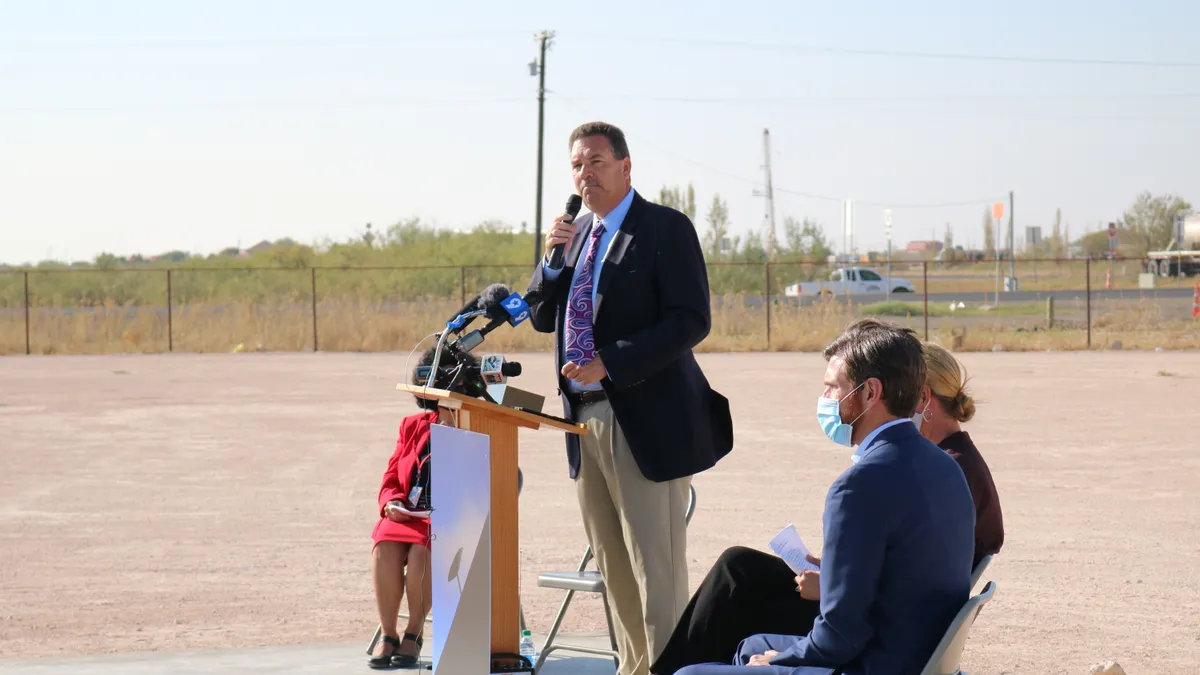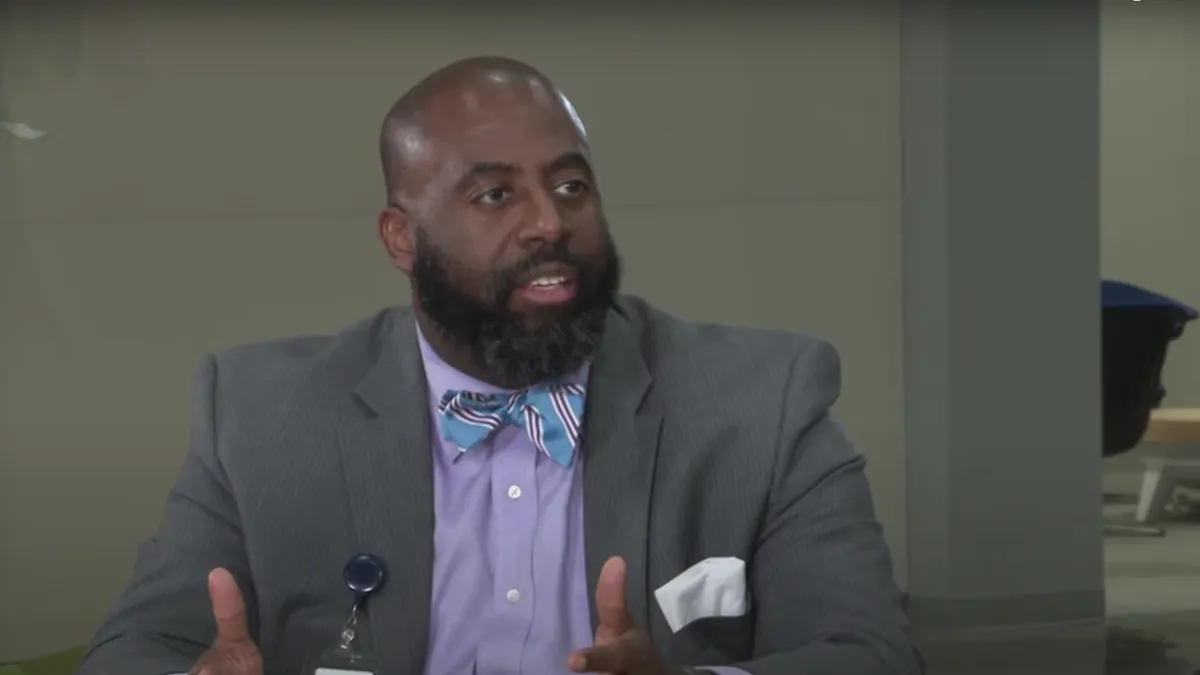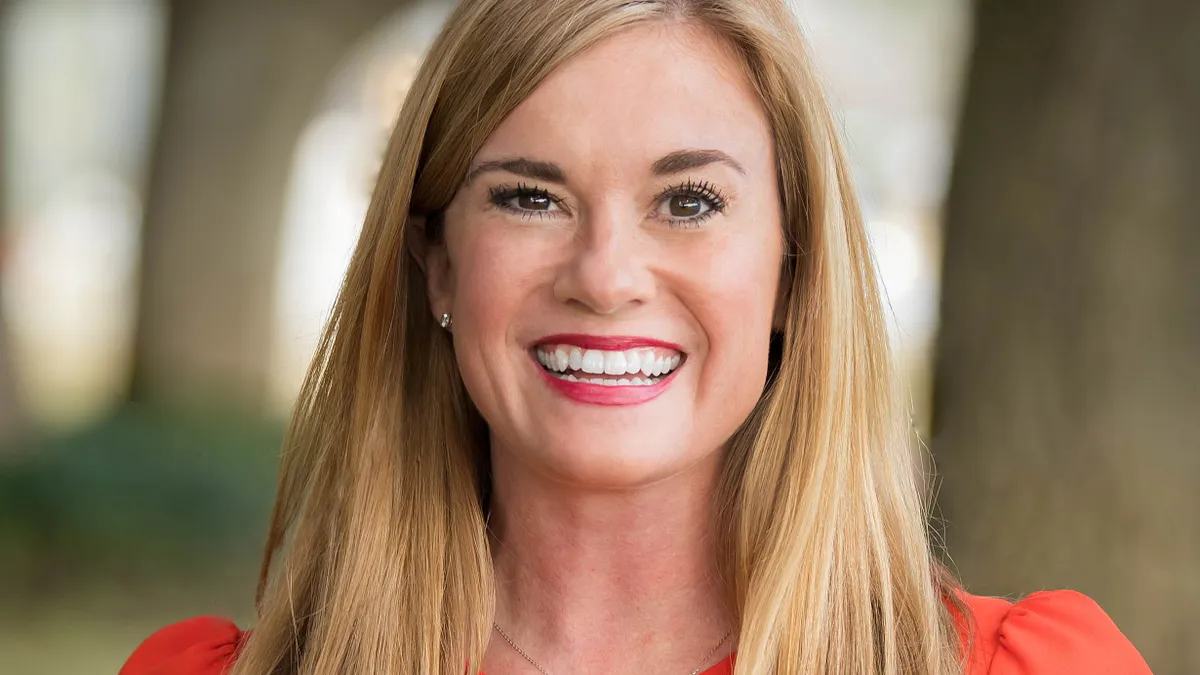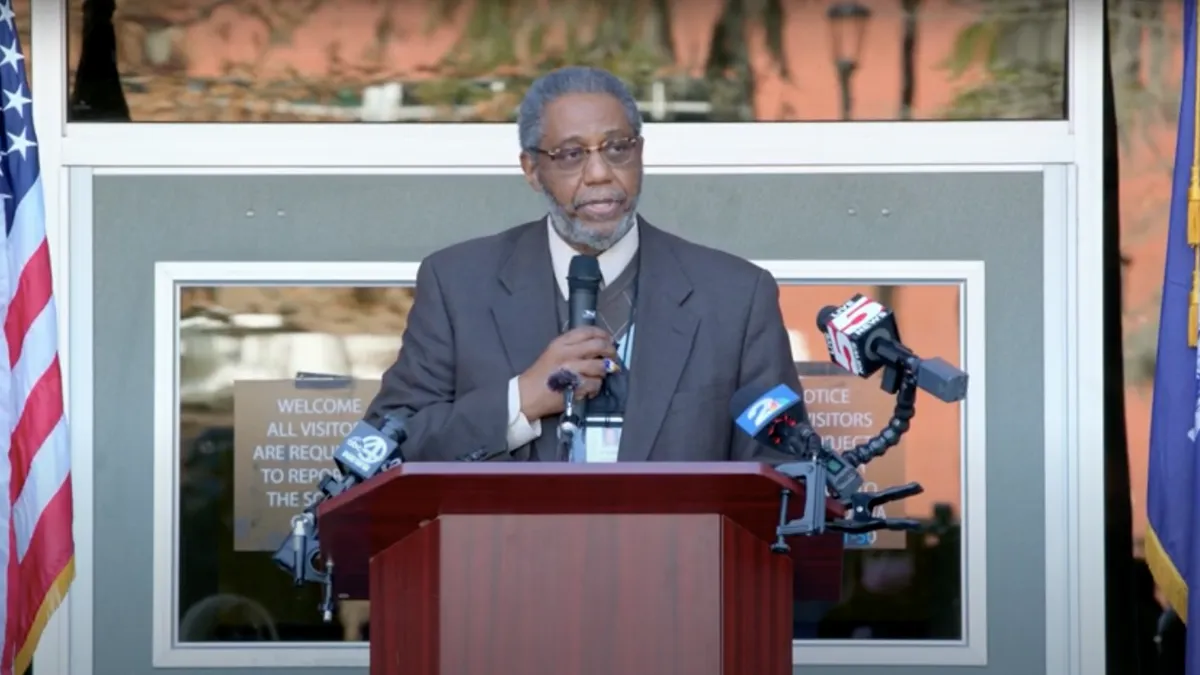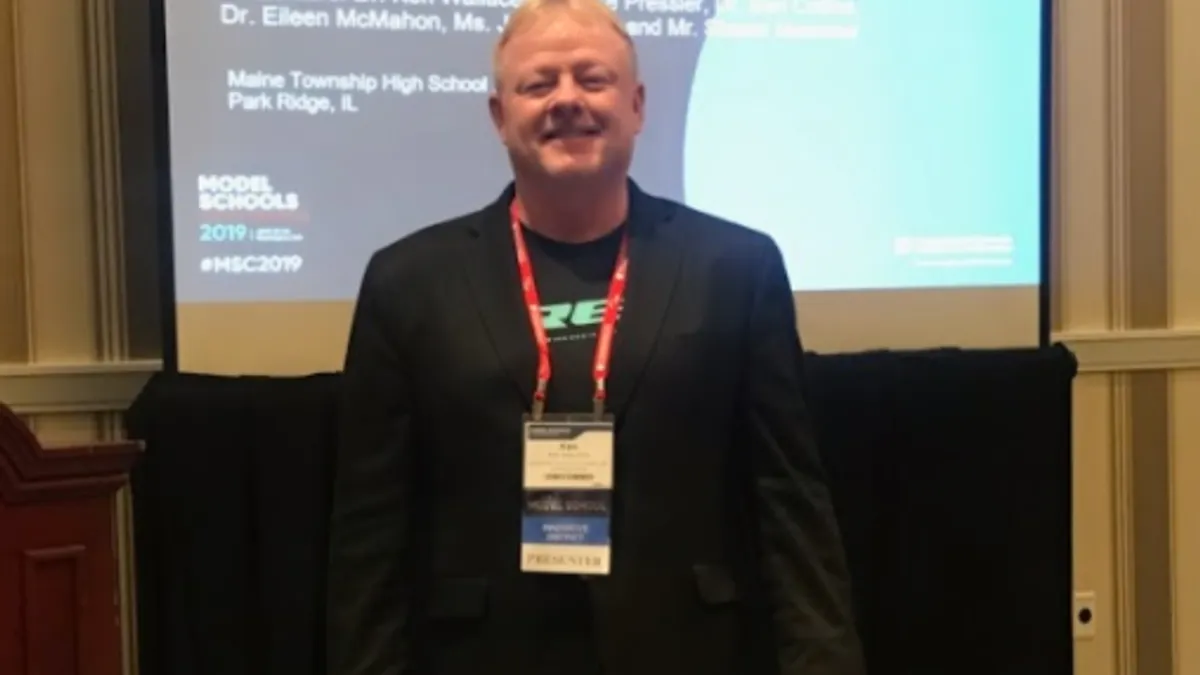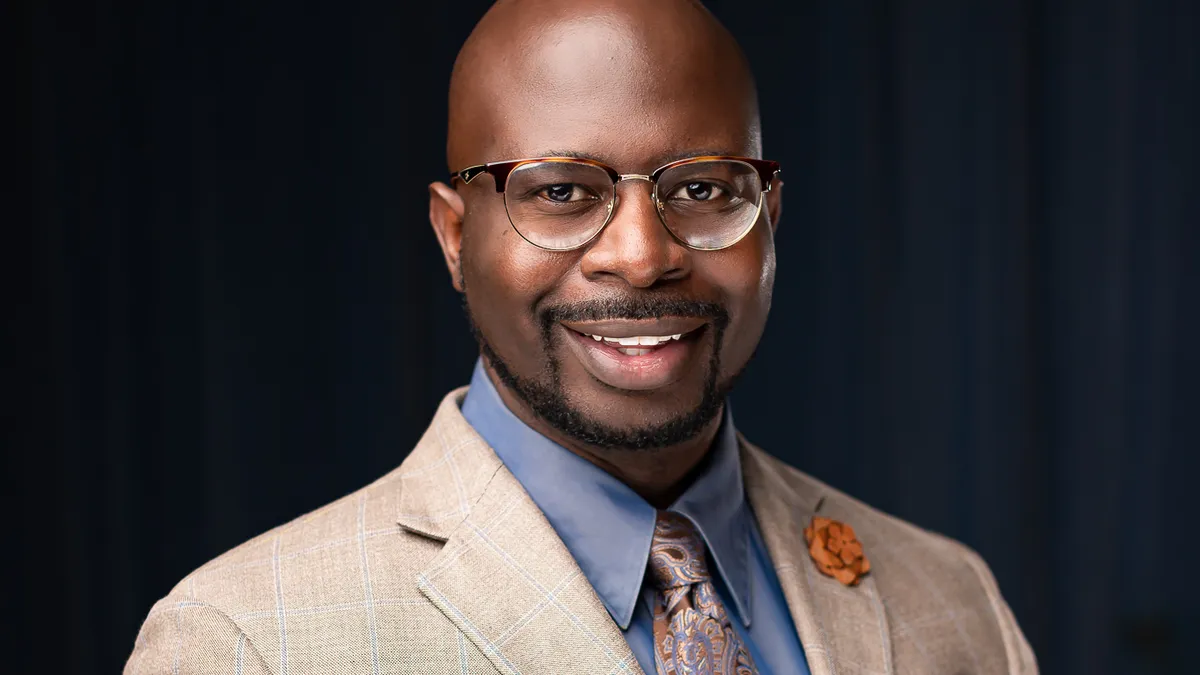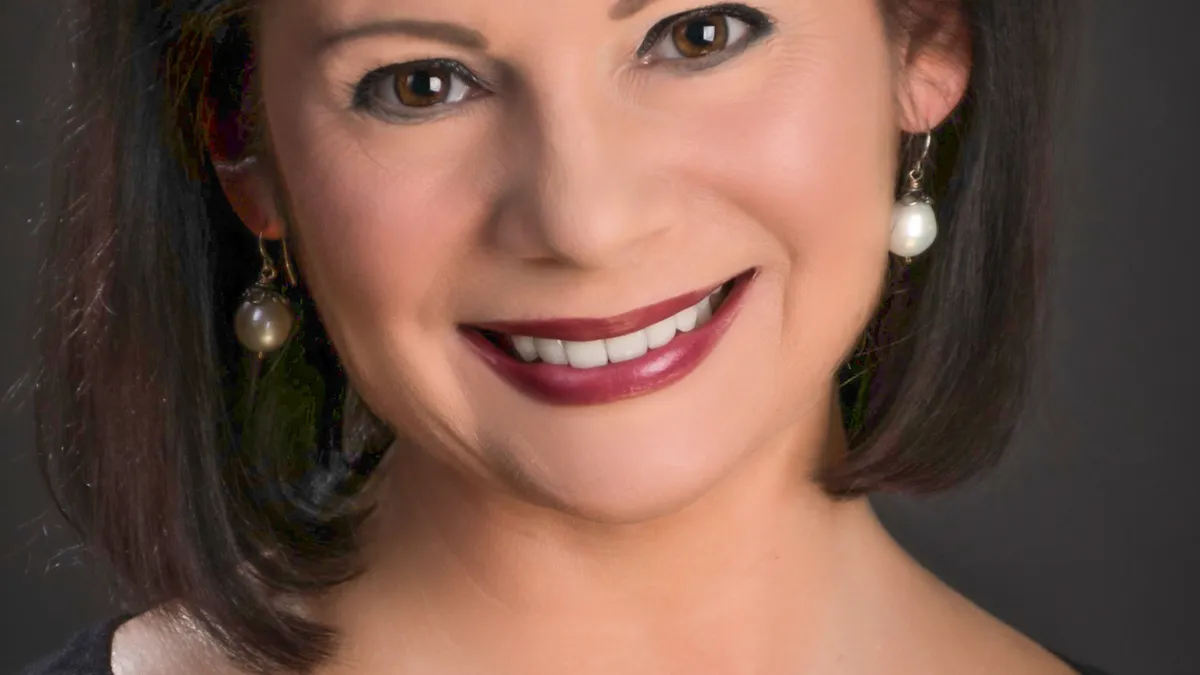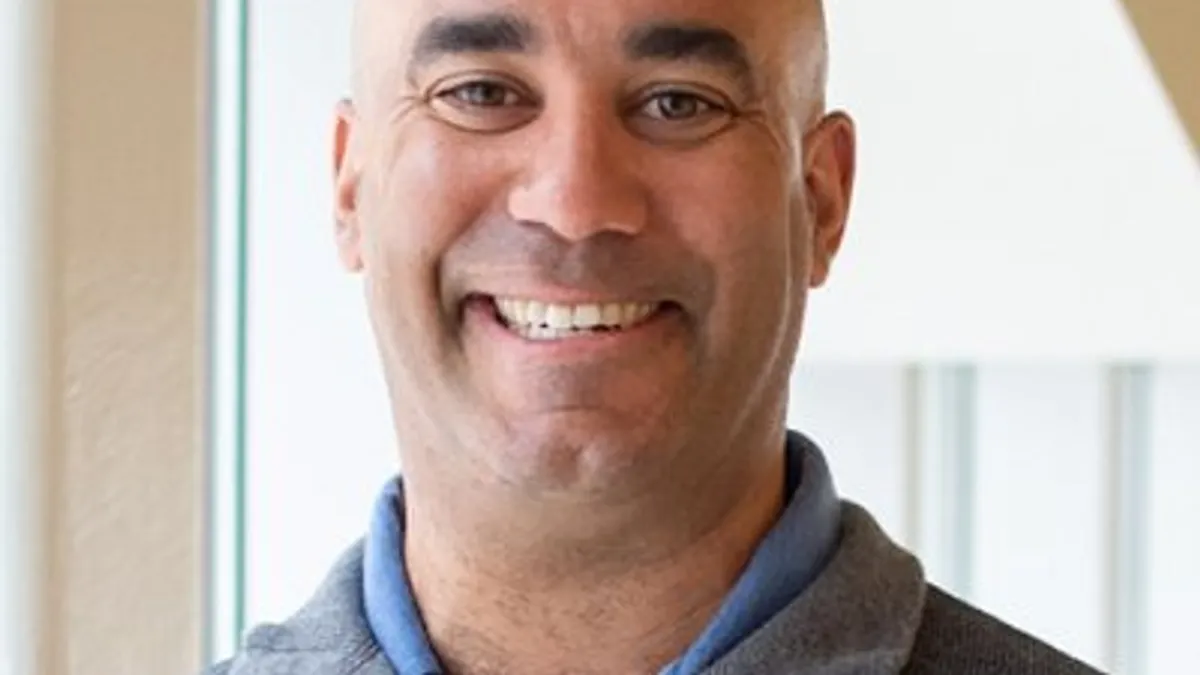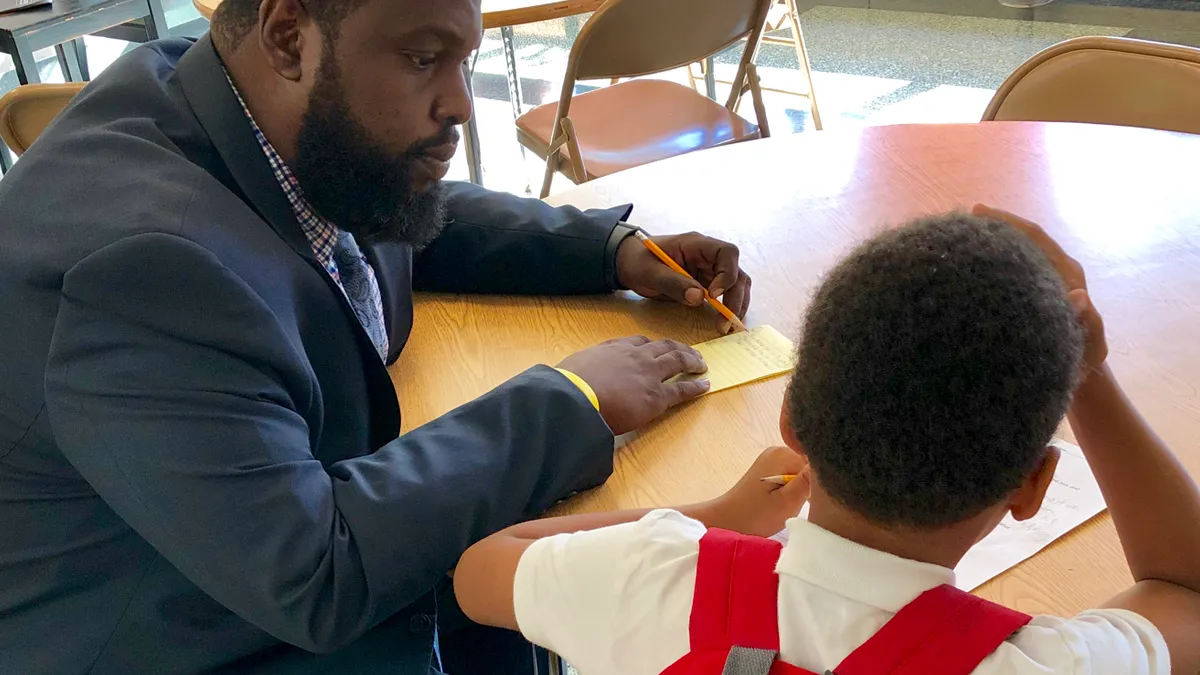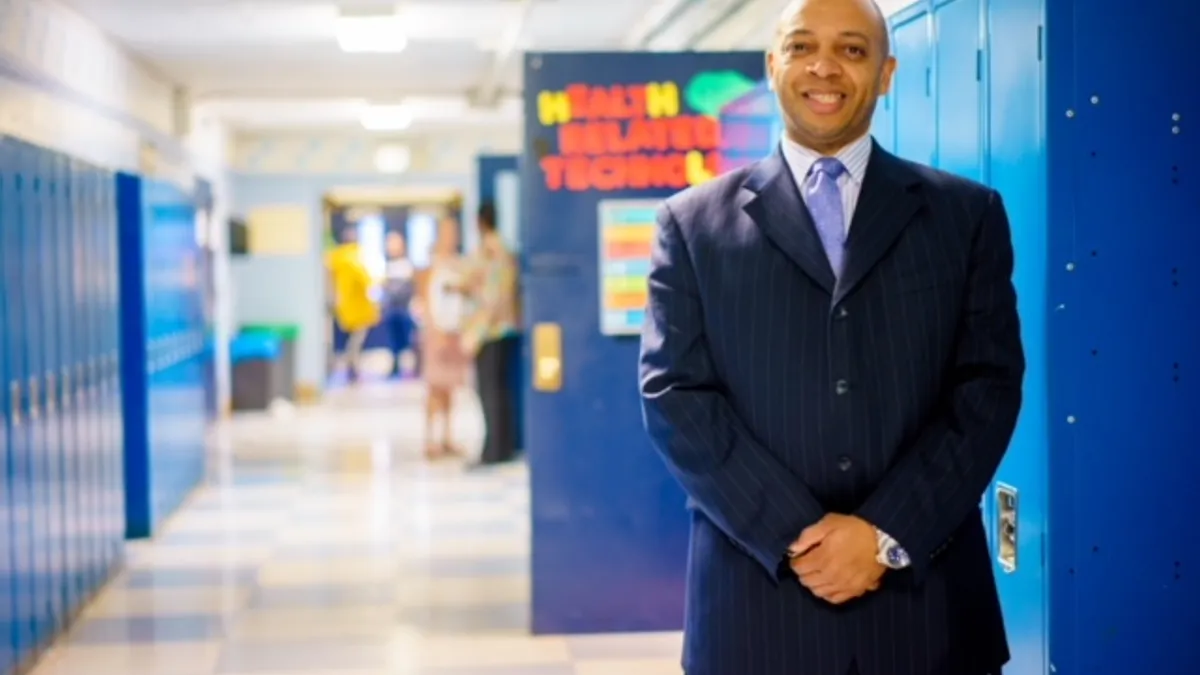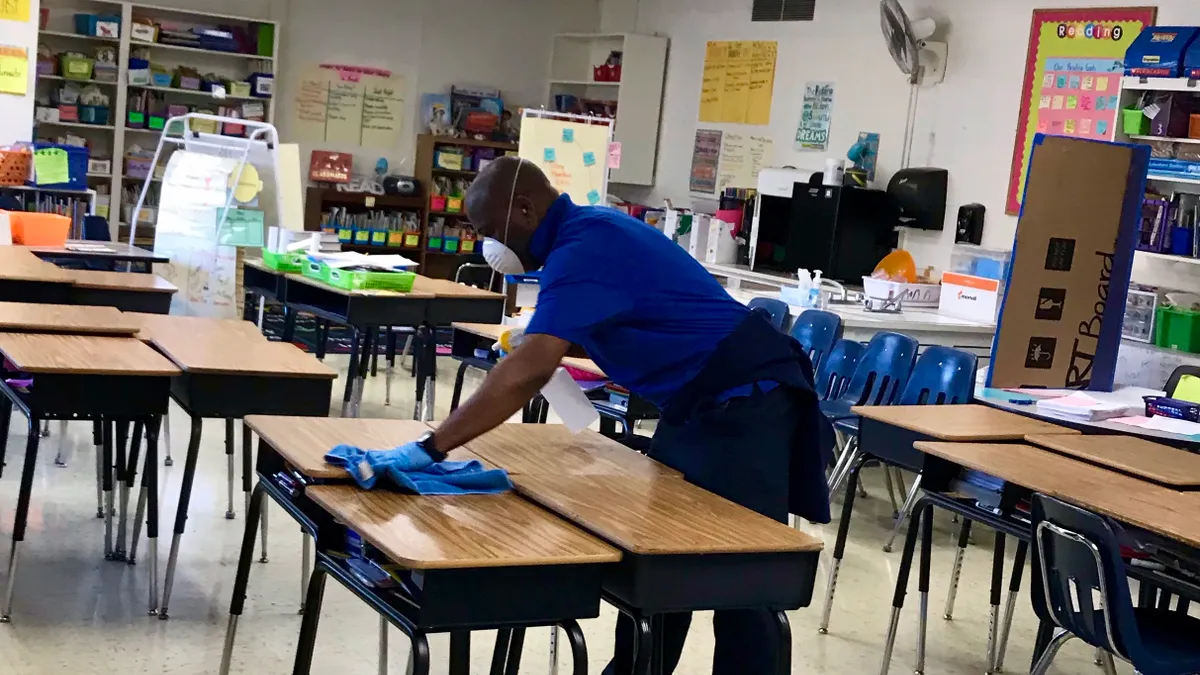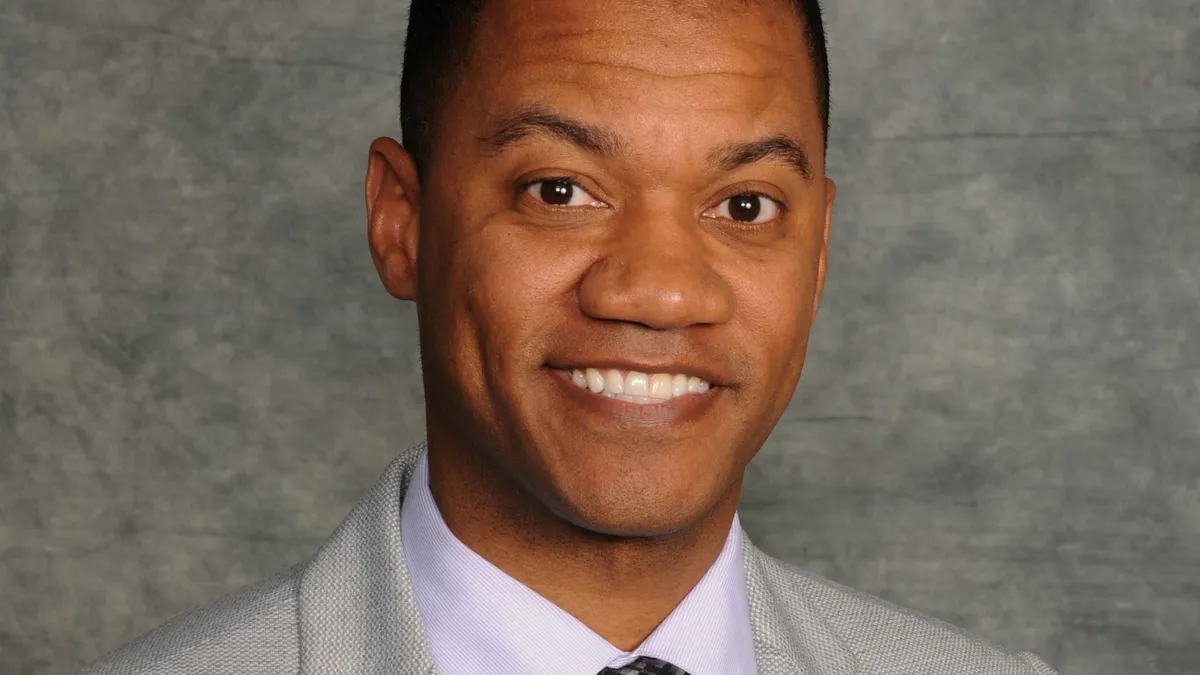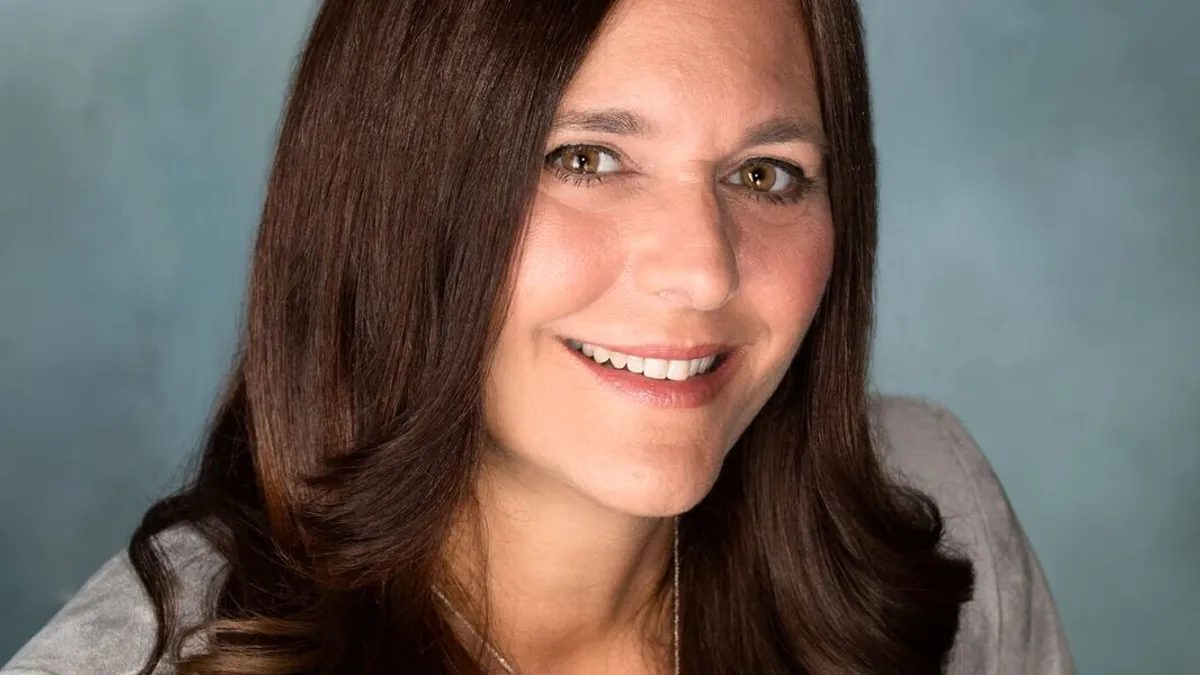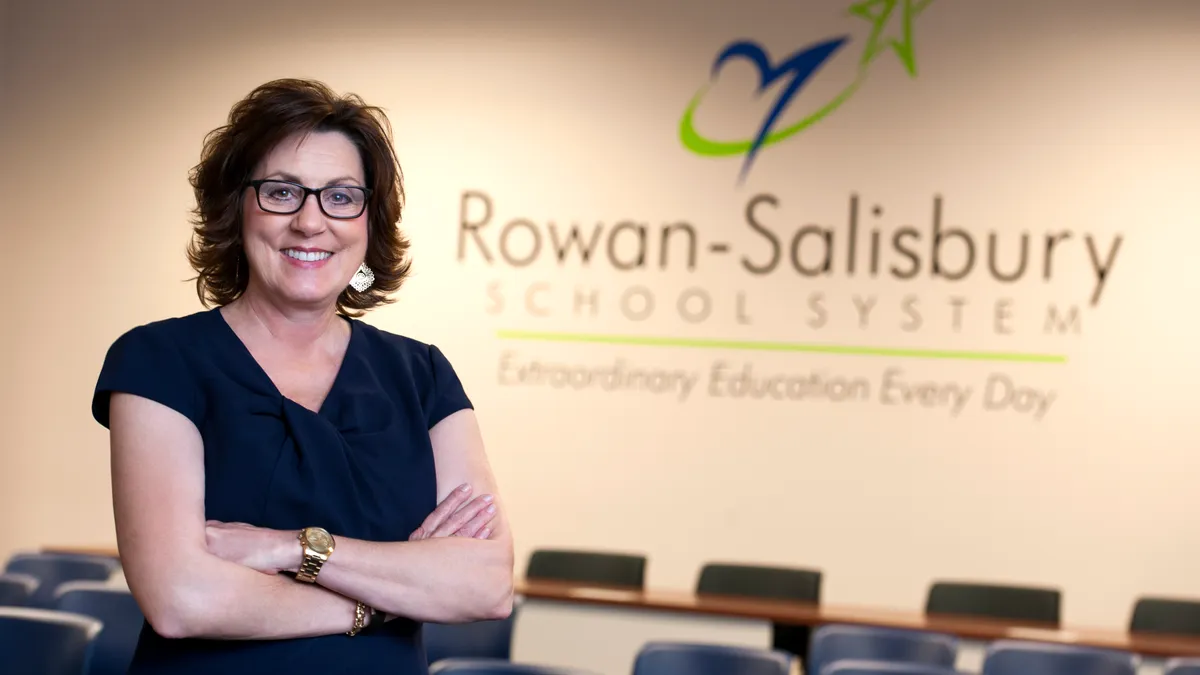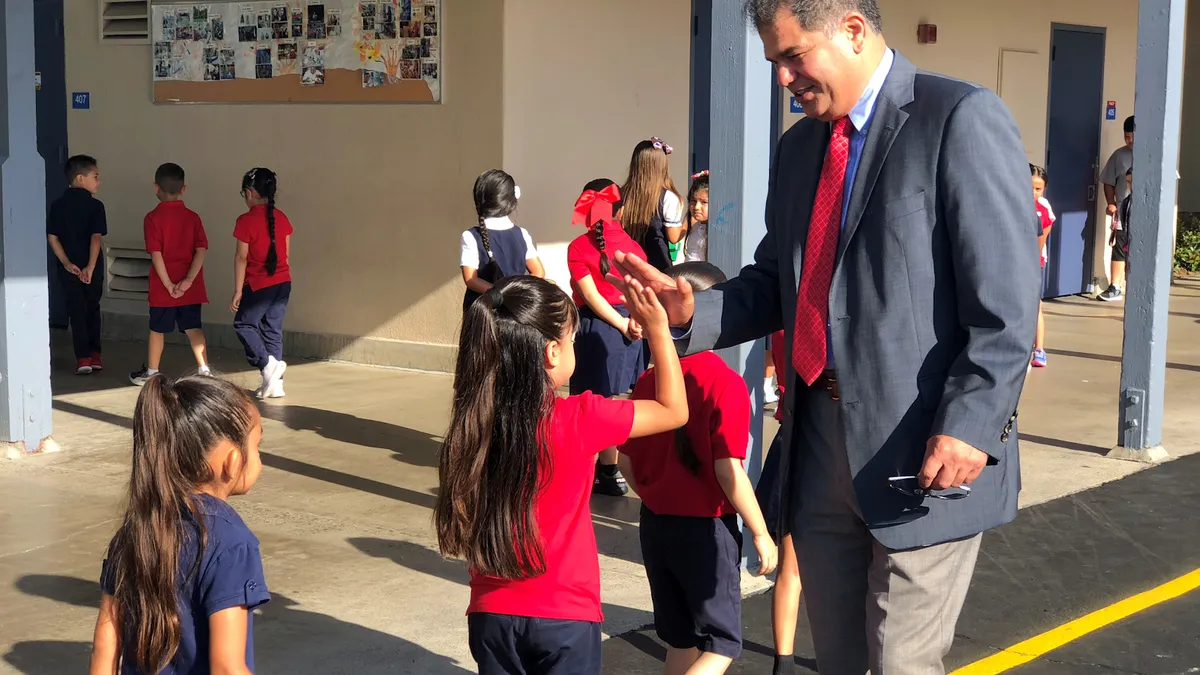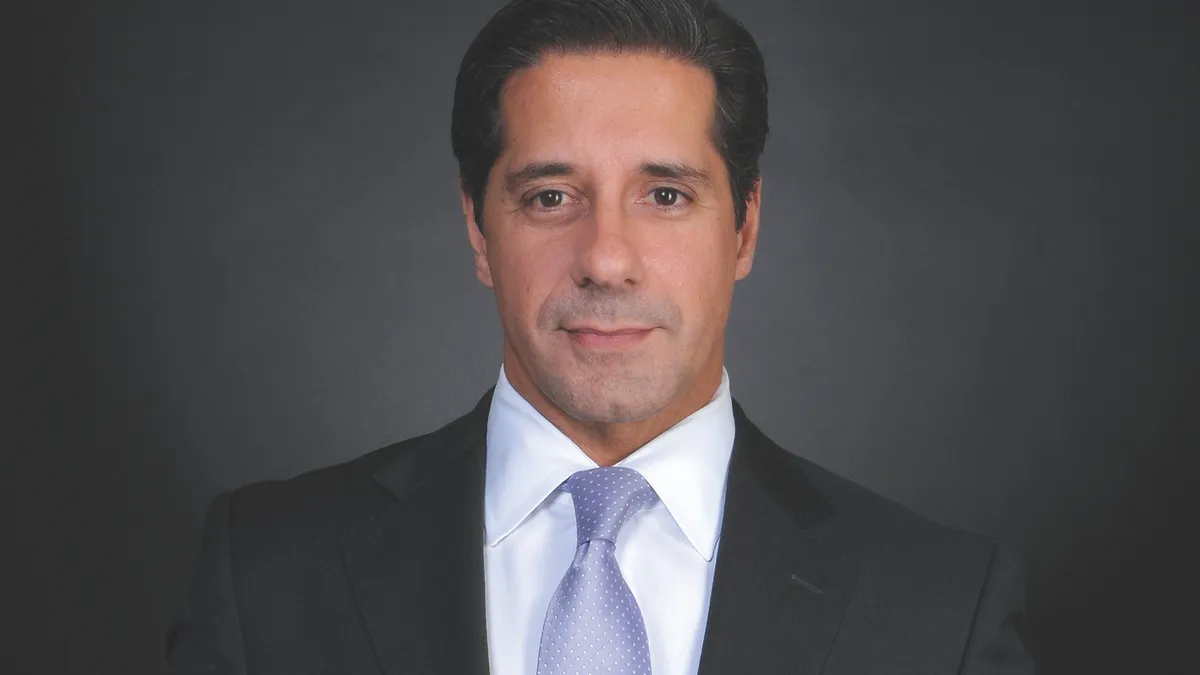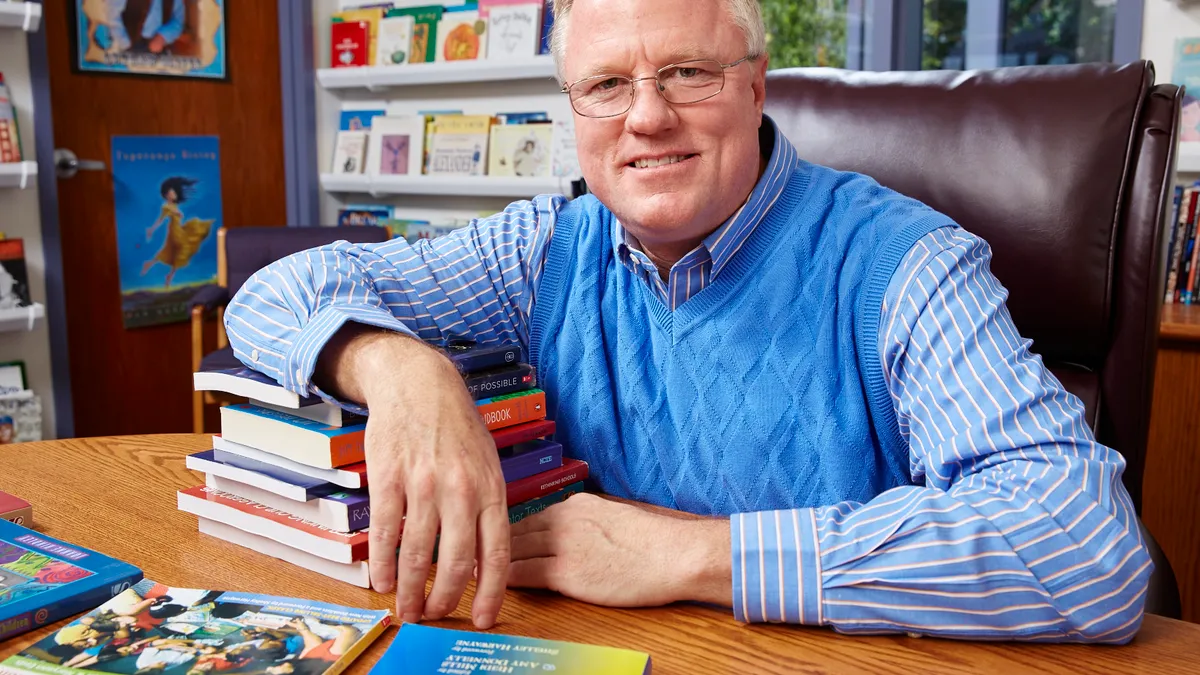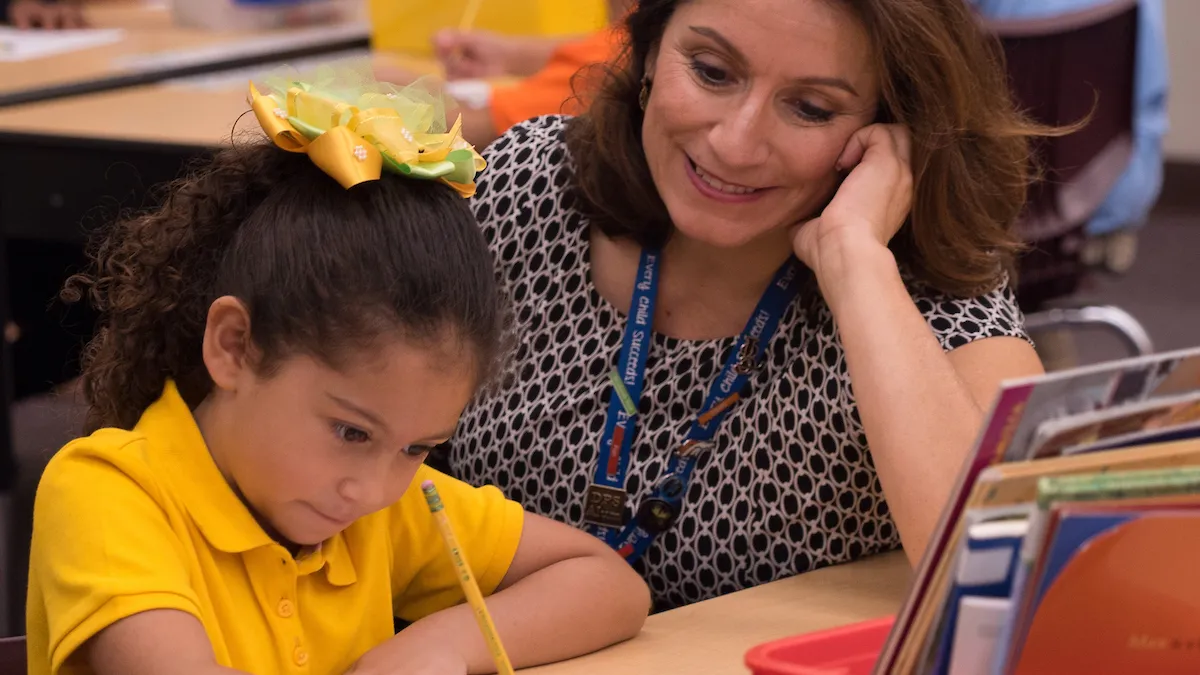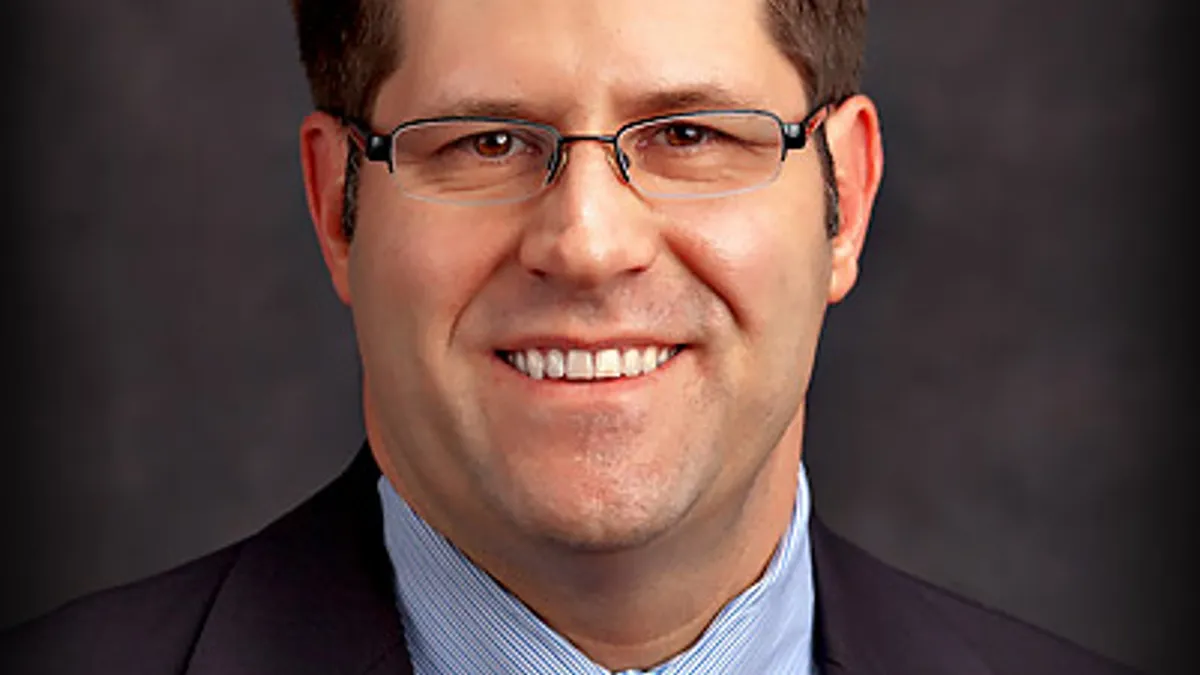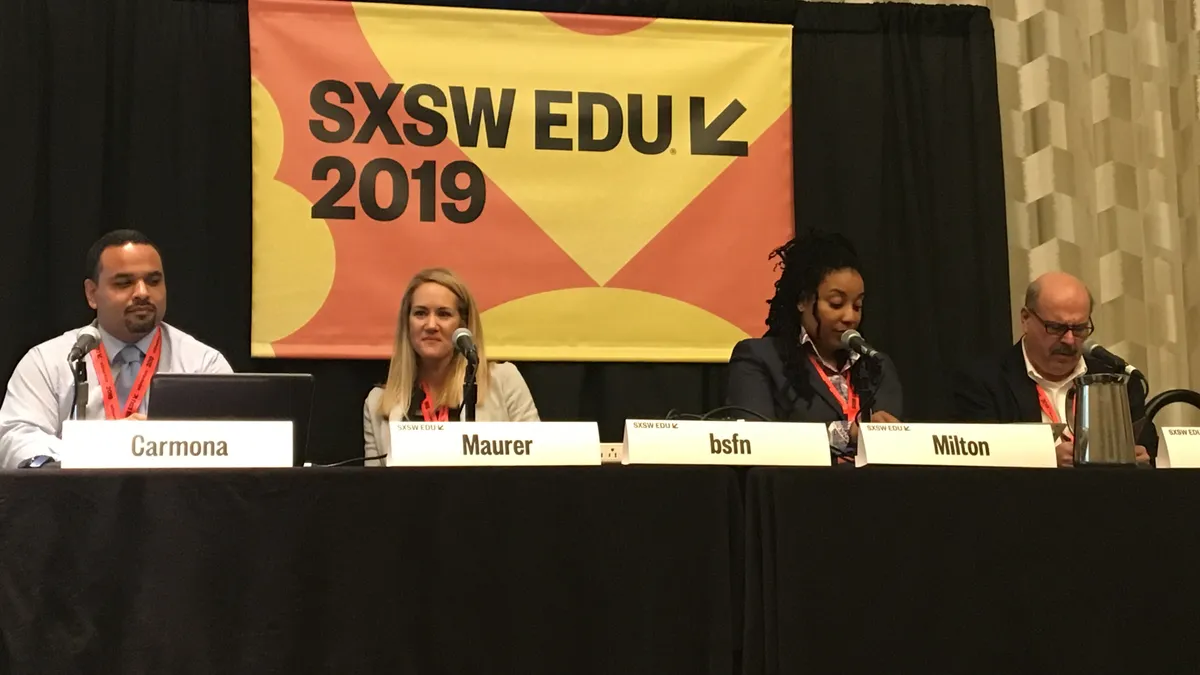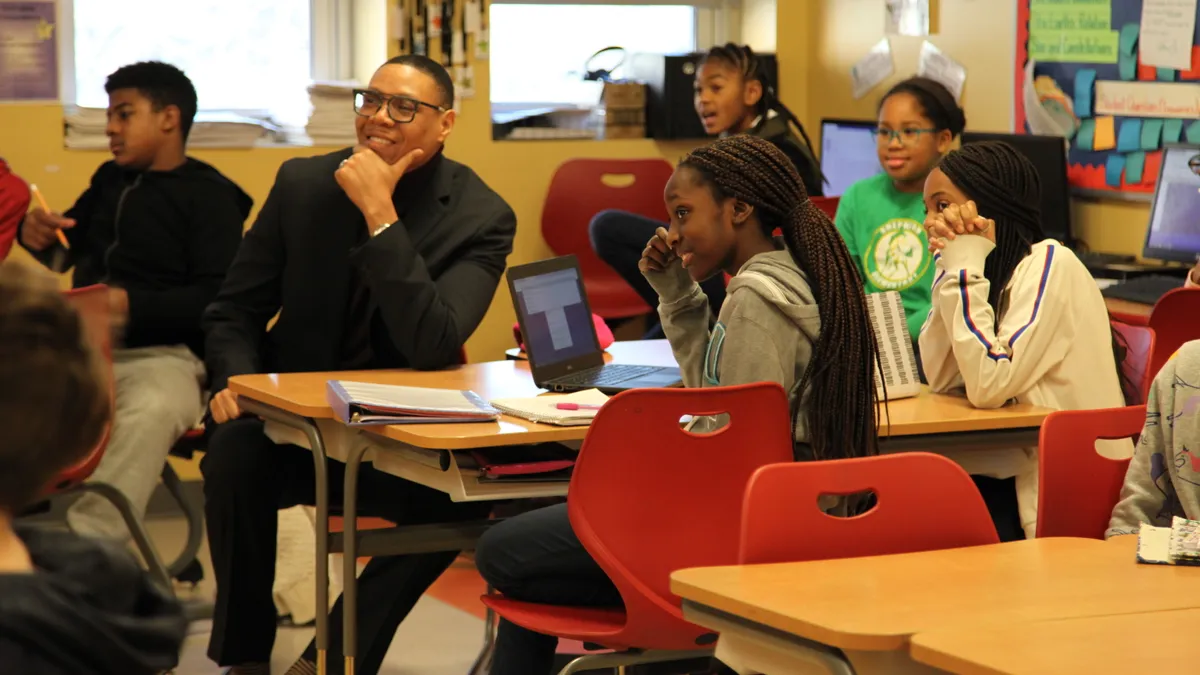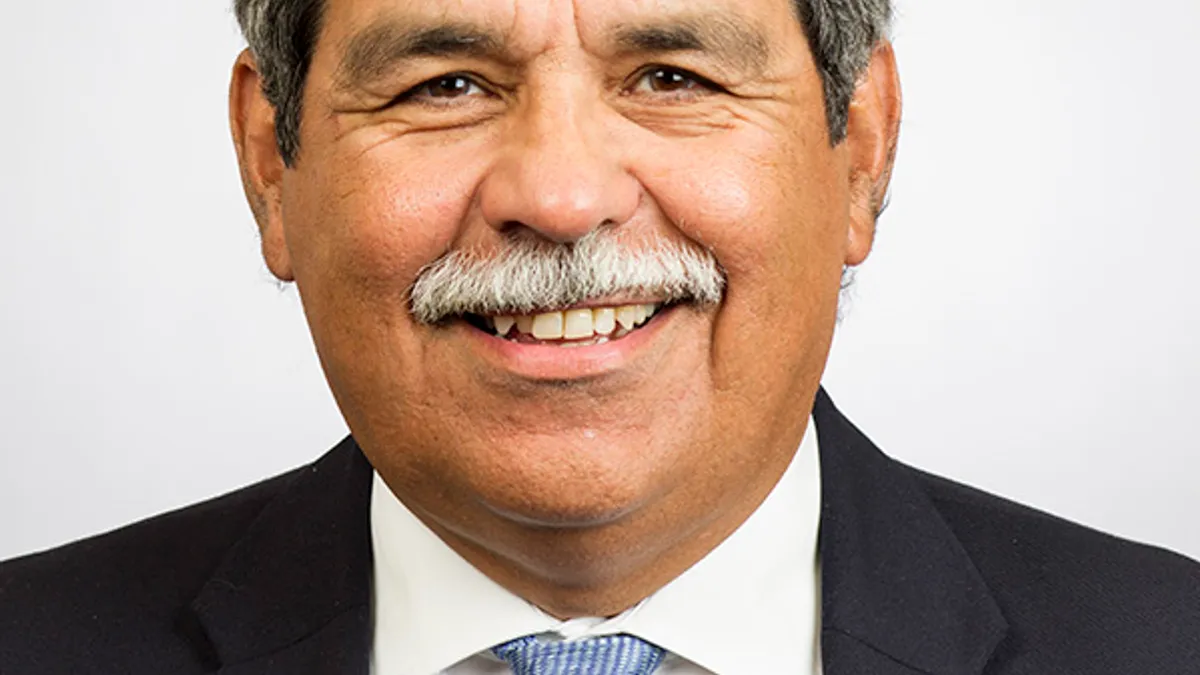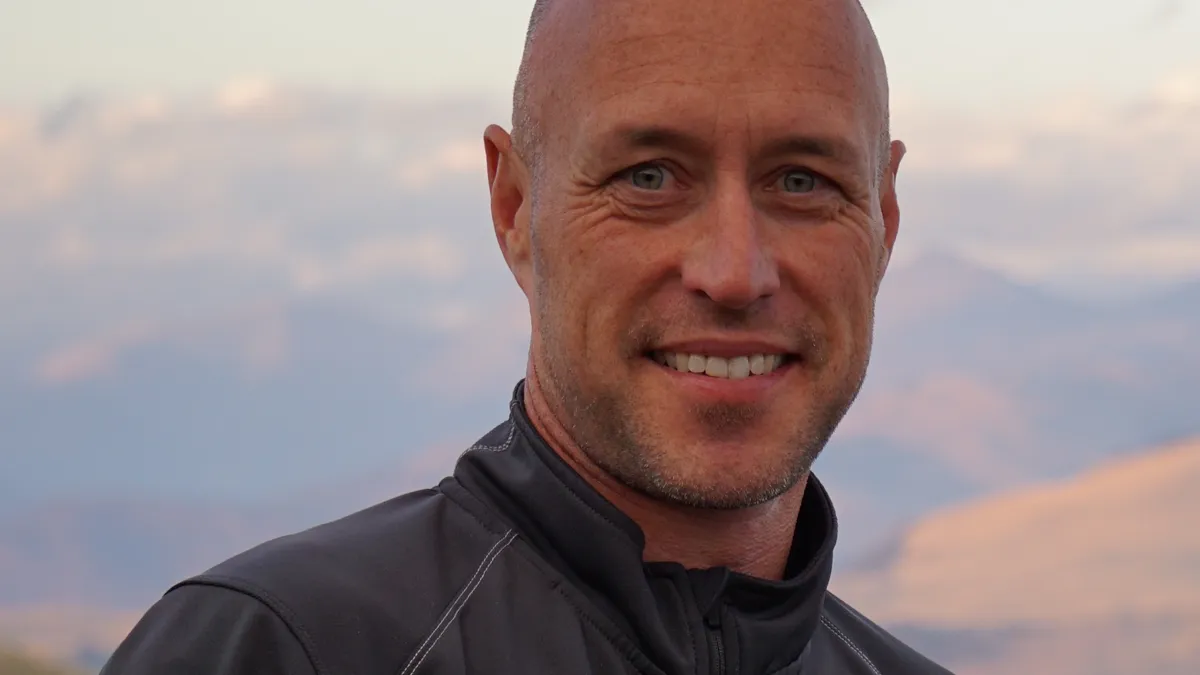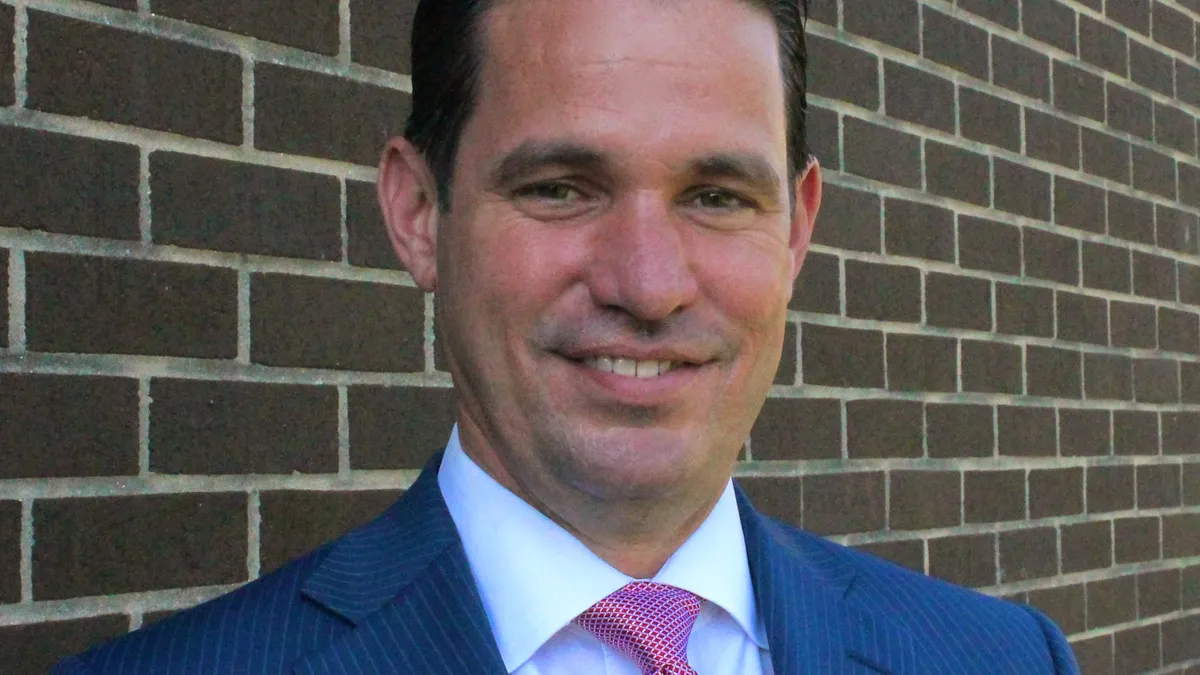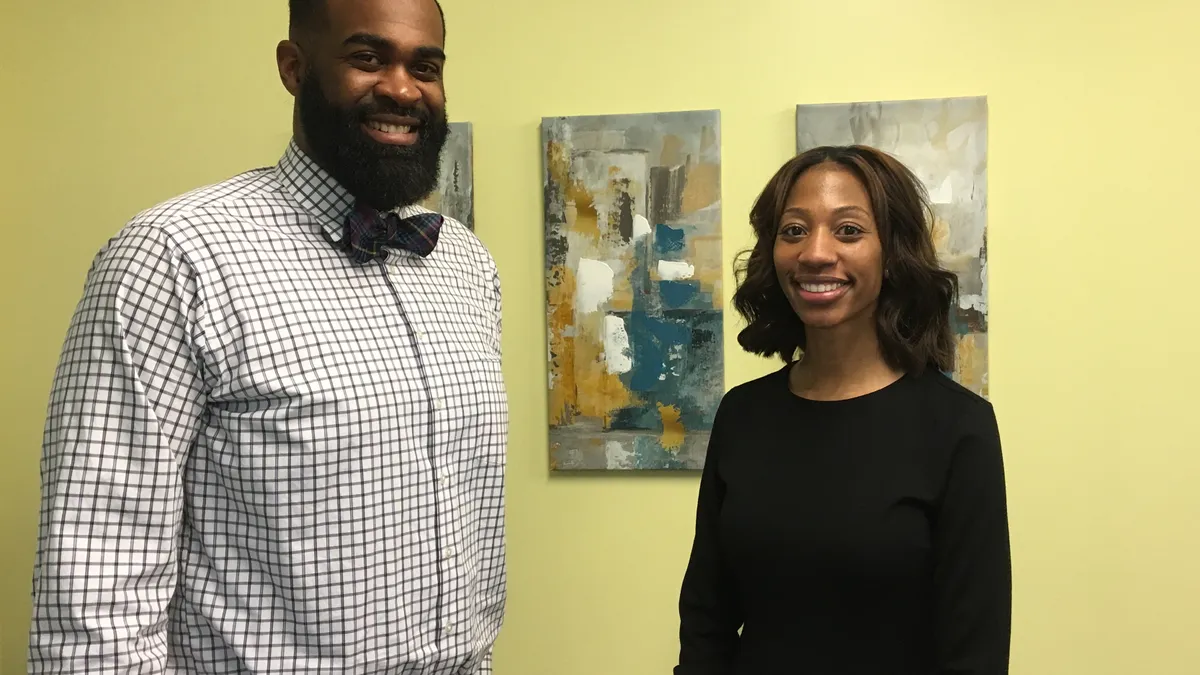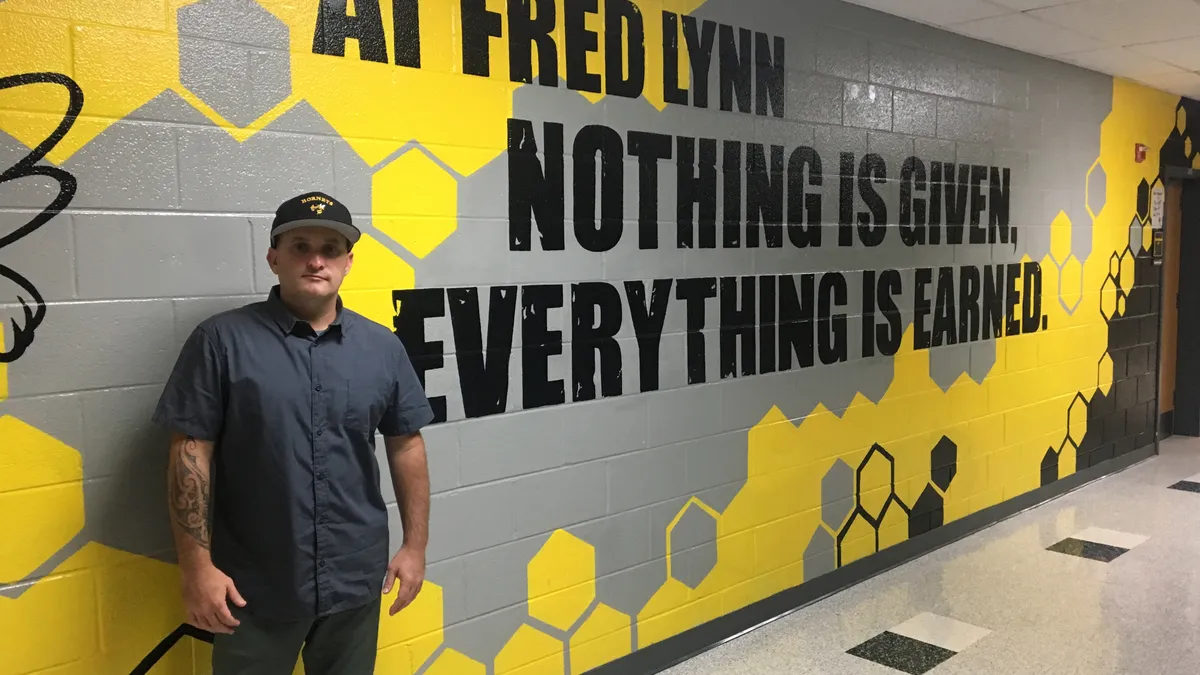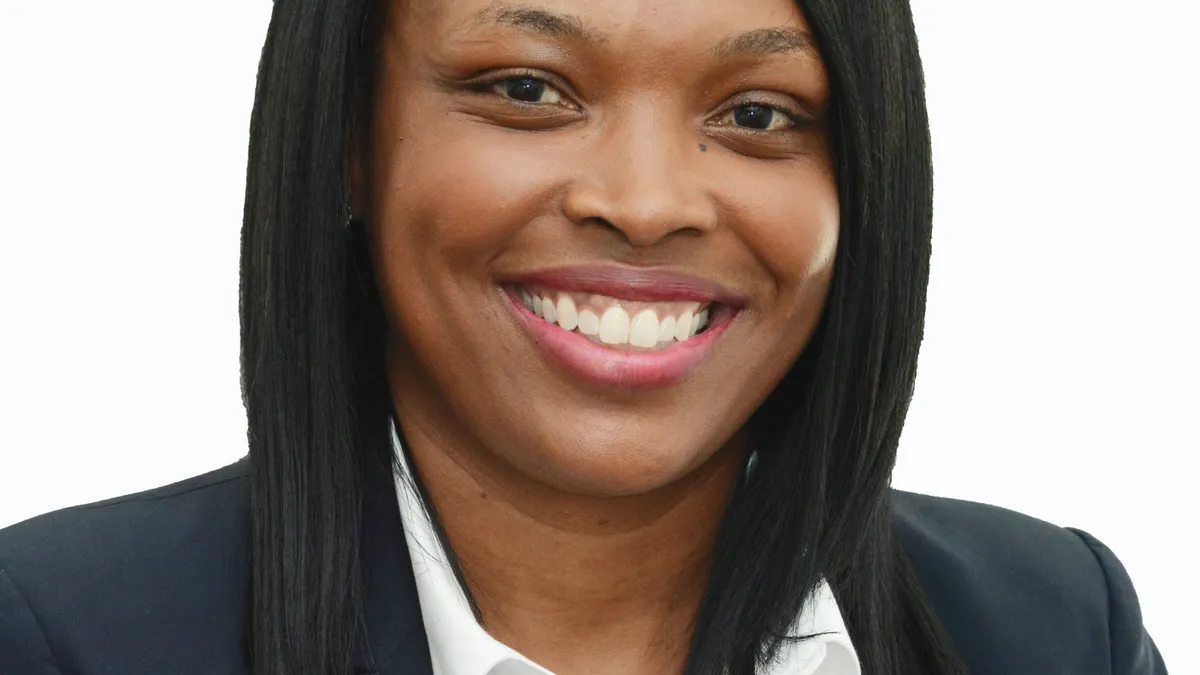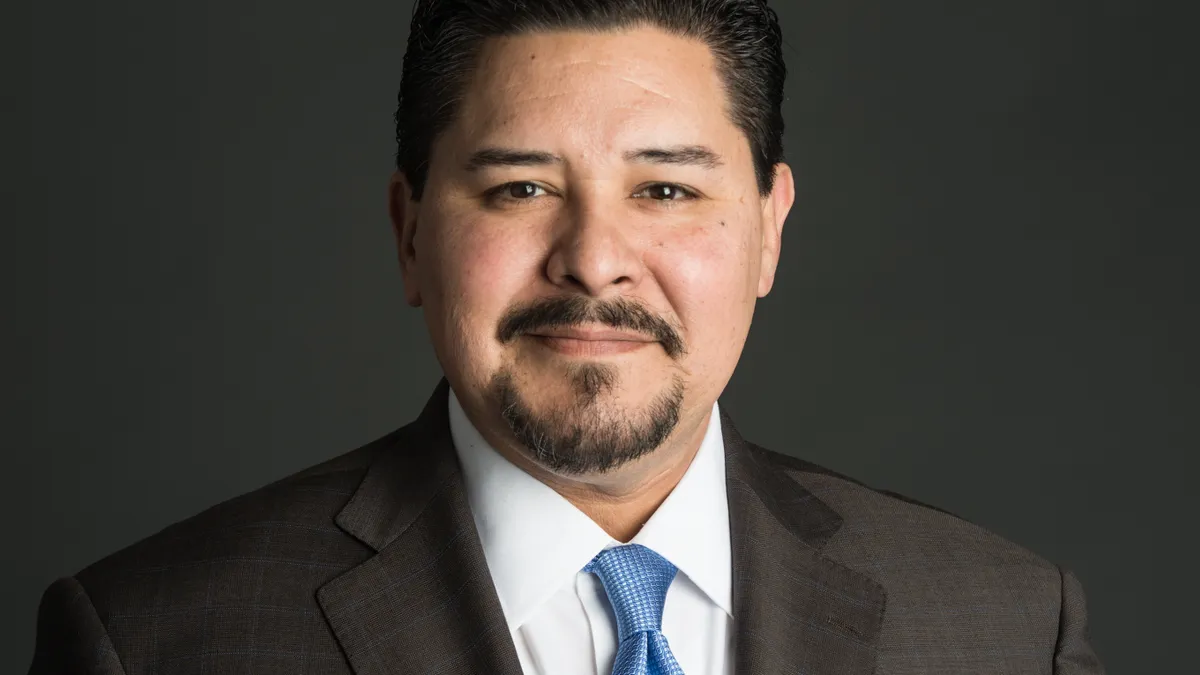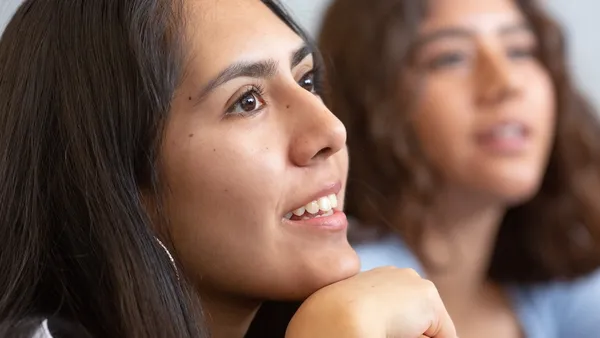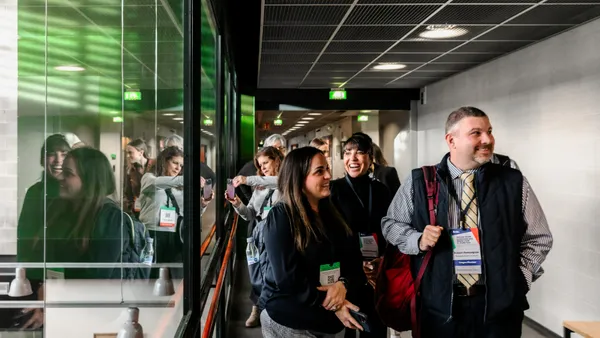Lessons In Leadership is an ongoing series in which K-12 principals and superintendents share their best practices and challenges overcome. For more installments, click here.
"What drives me as an educator is that whole underdog piece in that, statistically speaking, I'm not a person that should be in education," Beth Houf, principal of Fulton Middle School in Missouri, recently told Education Dive.
Born to parents who were just 14 and never married, she credits strong relationships with family and her community for her success in spite of society saying "You shouldn't be."
It was that same underdog spirit that drove Houf from the classroom into administration around 2008. During a year spent providing professional development to other schools in her region as part of a state-sponsored program, she noticed great teachers struggling in schools that lacked strong, inspirational leadership.
But her path to becoming an influential leader wasn't easy: She, too, considered leaving the profession in 2014, worn down from an educational culture focused on data and test scores. But after attending that year's National Principals Conference, she was introduced to educator and consultant Dave Burgess' "Teach Like A Pirate" culture.
Inspired and re-energized, she returned to school with the understanding that, up until then, "I didn't lead like me," she said.
"Our job is a serious job and so important, but I need to be having fun when I work. I need to be having fun as a leader," said Houf, co-author of "Lead Like A Pirate" with consultant and former administrator Shelley Burgess. "I need to model that to those that I lead. It's OK to let the kids know you love them, and it's OK to be real as a leader. And I really had been lacking that."
Over the course of our conversation, Houf told us more about what it means to lead like a pirate, where she sees educators lose focus of their "why," and how she makes time for staff to pursue "passion PD."
The following interview has been edited for brevity and clarity.
EDUCATION DIVE: What does it mean to you to lead like a pirate?
BETH HOUF: I think leading like a pirate is all about making sure that we are centered on the why of the work. That also centers so much on our mission and our vision, making sure that we are crystal clear about what it's about. It means being human, and it means being real. And it means I don't get to choose the work that happens every day.
As an administrator, I never know exactly what’s going to come through the door, but I always have a decision about how I choose to deal with it. So it also means leading with positivity and knowing those negative situations are going to happen, but [we decide] how we deal with them.
In one of [our] meetings we did earlier this summer, I gave each of [my staff] a cactus, and I said, “We're going to have cactuses happen all the time. Somebody's going to give us a cactus and, we can either sit on it or we can figure out how we're gonna deal with it in a way that does not make it even more painful.”
Another pillar for me personally is being enthusiastic. [But] enthusiasm can be faked. Passion can't be. Make sure that you really are in tune with what you're passionate about, what your why is, and notice when you're veering off course.
That's what happened to me when I wanted to change fields. I watch our staff a lot, because I can tell whenever they're veering off of what they're passionate about and they don't feel like they're doing work that's fulfilling. They start to lose that spark that makes them who they are.
[Leading like a pirate] also means transforming the norm. Our [book] subtitle is “Make school amazing for your students and staff." It’s that mindset of how can we make school ... be a place where, even if we don't always have that positive mental mindset, how can we make school amazing for everyone.
It also means culture. The academic piece has to be a model, but we believe deeply that when you are at a place that you love to be, it makes learning so much easier to grow in that type of culture.
That's, in a nutshell, what it means.
What are some of the biggest pitfall areas where educators lose focus of that what you call the importance of understanding your "why"?
HOUF: There's a lot of stressors that get put on us that kind of take us away from that. We tend to go, go, go all day long. There's not always time to process and reflect and things. A big part of it is being able to feel like you can breathe. We move at such a high pace sometimes that it's like, "OK, how can we put in systems to reflect upon how we're doing?”
Something we've been talking about a lot in our building is taking care of yourself. Do you have your wellness checks planned? Are you making sure you take care of yourself in a proactive way so it's not all reactionary? That's what we're really noticing.
Myself included — I have to, as a leader, model the behaviors that are good for our staff. Sometimes when I work 16 hour days, I'm putting out the idea this is what you have to do to be successful. I have to really look introspectively at what I do and realize people are looking at me, too, as the example.
As a mom of two kids, I can't work 16 hours every day because I'm showing [staff] that I would expect them to do that. So it's just a lot of having the conversation and respect.
I also think the secondary effects of trauma are huge on our staff right now. So many kids are dealing with just atrocious situations at home, so as we become a more trauma-informed school, our teachers hold onto that. And our counselors and everybody in the school.
I've had to really learn how to process through the stress that my teachers are going through, because I carry that on my shoulders, and also the horrible things that are happening to kids at times. Because you take that home with you. You don't leave that at school.
We've done a lot of specific and intentional training on how to deal with trauma with kids, but also on how we take care of the secondary effects of trauma on ourselves. I see that happening quite a bit.
One thing you mentioned during your National Principals Conference session this summer was the power of positive referrals. How have you noticed the impact of that on culture among students? Does it encourage them to want positive referrals themselves?
HOUF: Definitely. We started doing this when I came back from that conference in the 2014-15 school year. I started that out with elementary kiddos. They ate that up. They loved coming down.
Moving up to middle school was very similar. Some of the kids act like they don't [like it] because that's middle school. Sometimes you're too cool for everything.
First of all, it helped our staff. It shifted what we were looking for. What you tend to look for is what you tend to find. And sometimes it seems as though we were waiting for [the students] to mess up because they're middle-schoolers.
We made it a collective commitment to write at least one positive referral a day. We commit to finding at least one child that's going above and beyond. When you break it down like that, if I have a hundred kids in a day, I should be able to find at least one of them doing something above and beyond. That really changed quite a bit of what we were looking for.
You had some [students] that were like, nobody ever asked for positive referrals either. "Didn't you see me do something good? You should write me a positive referral." That wasn't the culture at all.
It's fun, too, in the principal's office to call home and tell a parent, "Your kid's in the principal's office." We can be disciplinarians if we have to be, but at the same time, we want to build strong relationships with our families. There's not a single person out there that doesn't want to hear something great about their kid that's specific to something that they did.
It also has helped to flip that "I only hear about when bad things happen." That's not what we want [to hear] from our parents.
And you have to know your kids well enough to where you know which ones you go crazy about vocally and which ones you're a little more low-key about, because as they hit middle school, they're a little more shy about some of that.
Providing more personalized professional development opportunities is a big focus for a lot of administrators, and one of your focus areas is providing "passion PD" for your staff. What advice do you have for others on that front?
HOUF: We've done it a few different ways, and it has to fit your staff and their needs. There's definitely a need for collective professional development. We're doing a book study together as a staff this year. We don't do book studies usually, but we need this and we want this and we're very much committed to it as a staff.
We take our staff meeting or we take our professional development days and look at what is it that you want to learn about. How is it tied to our building goals? How is it tied to your professional development plan? What is it you're going to do?
And then we offer up time during that, kind of like the Genius Hour or the "20% time" that Google did with their employees. It's not just grading papers or the more clerical side of our job. What's funny is when we did this, the digital principal thing was what I wanted to learn more about. So I gave myself part of that, as well.
I said, "OK, my professional learning time is going to be about being a better digital principal." Which is ironic now, because it's like, "OK, that worked out well for me." So you look at that with what happens when you put intentional time with it.
That's one easy way that you can give a little bit of time each month.
The other thing we did last year is we had passion PD plans, so the staff actually built their PD plan based on what they're passionate about in education. It's simple to link that to a school goal, because there's always a school goal about improving academics.
When teachers are going after it with what they're passionate about, it's going to improve what's going on in the classroom, which in turn is going to improve achievement. There's so much you can see when the teacher is so engaged in that. That really helped ... on the teaching side of it.



